gair rhydd
In this week’s issue: Te Welsh obesity epidemic and the NHS, the true cost of graduation, the dangers of paracetamol, and why hip hop icon Drake is the face of 21st Century masculinity


In this week’s issue: Te Welsh obesity epidemic and the NHS, the true cost of graduation, the dangers of paracetamol, and why hip hop icon Drake is the face of 21st Century masculinity

Journalism and Dentistry are ranked 1st in UK...
Cardiff University has been named the best university in Britain to study subjects relating to both Journalism, Public Relations and Publishing and Dentistry, according to rankings unveiled by the Guardian.
Te School of Journalism, Media and Cultural Studies was awarded the highest possible score of one hundred, securing first place in the centre-left daily’s league table and staving off competition from fiftyseven other universities in the United Kingdom that offer similar courses.
Te 2015-16 league table is based largely on data obtained from student feedback and, in particular, the results of surveys conducted amongst final-year students.
According to the statistics obtained, eighty-five per cent of Journalism, Media and Culture students stated that they were satisfied with their course whilst 89.3 percent claimed to be satisfied with the standard of teaching.
Te results see the department, which has been termed “the Oxbridge of Journalism”, move up three
...But English outside top 50, and Economics behind Cardiff Met
places from its position of fourth overall last year.
Te School has produced alumni including BBC journalist and former kidnap victim Alan Johnston, newsreader Huw Edwards and television presenters Adrian Chiles, Susannah Reid and Manish Bhasin.
A good student-to-staff ratio of 15.9 also helped to boost the School’s overall ranking, whilst it is predicted that sixty-seven per cent of the students will be able to find a career in their chosen field within six months of graduating.
Oxford Brooks was named second-best University in the UK for its journalism-related courses, followed by Sheffield University in third place overall.
Meanwhile, the University’s School of Dentistry was also ranked the best in the UK according to the Guardian league table, representing a rise of eleven places relative to last year’s standings.
Te percentage of its graduates to be in full time work some six months after graduation was also an impressive one hundred percent.

Continued on page 4

EDITOR
Michael O’Connell-Davidson
GAIR
RHYDD CO-ORDINATOR
Elaine Morgan
NEWS
Georgia Hamer
Katie Evans
Alexander Norton
Anna Lewis ADVICE
Kirsty Fardell
COMMENT
Anne Porter
Gareth Evans
Olivier van den Bent-Kelly
COLUMNIST
Jason Roberts
POLITICS
Carwyn Williams
Lauren Boyd Rhiannon Tapp
SCIENCE
Shanna Hamilton
Meryon Roderick
SOCIETIES
Hannah Sterritt
PARK LIFE
Vidya Brainerd
TAF-OD
Steffan Bryn Jones
Morgan Owen SPORT
David Hooson
Rory Benson
Joe Atkinson
PRODUCTION
EDITOR
Sum Sze Tam
DIGITAL EDITORS
Jordan Adams
Gregory McChesney
SOCIAL MEDIA
EDITOR
Maria Mellor
Want to join the team?
Editorial conferences are each monday at 5PM. Proofreading takes place on Thursdays at 6PM in the media office during print weeks.
Write us a letter letters@gairrhydd.com Tweet us: @gairrhydd
In this issue we’ve published our first ever “democracy review”, an extended series of features that look at the officer team and other democratic bodies in an effort to figure out how well they’re working.
We’ve worked very closely this year with the Union’s administration. As a result we’ve gained a unique picture of the students’ union and those who keep the cogs of the organisation turning as a result.
I confess that such an understanding has led us to be a bit opportunistic. We realised some time ago that, because the organisation lacks a transparent process by which senate motions are carried out (or not, as the case may often be), we could “break” stories by doing announcing their progress ourselves. Don’t get me wrong, I’m glad for the news - but I have to wonder what it says about the process that it falls upon the student newspaper to let those involved in policymaking know where passed motions have actually got to in terms of being implemented.
Indeed, I’d hazard that many public disagreements and other fun arguments that have marked the Union this year were a result of an organisation changing much faster than it was capable of communicating to its own membership. Te communications department here is very good, but does little to convey plans to the membership outside of the occasional email or statement on the website. Te officers certainly mean well, but rushed into a difficult job with little knowledge of what’s to come, it’s not hard to see how the message would get lost somewhere along the way.
Often, changes that were made (or, indeed, failed attempts at changing things) would be communicated by us, and we would do so in such a way that painted a picture of an organisation deaf to criticism or the needs of its constituent members. And this is because it’s often hard to see the organisation’s perspective on things as a common-or-garden student. I’ve seen numerous posts on YikYak that express emphatic displeasure regarding the name of club night “YOLO”, and the name isn’t set to change despite the masses crying out to the contrary. Rebranding a club night is petty in the grand scheme of things, but it’s the sort of forced cultural
change that leaves those outside of the Union bubble thinking that the organisation is out of touch.
But I know for a fact that the Students’ Union is (almost) entirely staffed by people who genuinely care about students. While Gair Rhydd may have given this ugly brick building a bit of a kicking over the year - and never without good reason, I might add - we have done so with the understanding that the people that make shit happen within its boundaries care. Whether or not that care extends to meaningful action is, of course, another matter.
And this extends to the sabbatical officers as well, who I can say mean well and have meant well from the start. Some have been guilty of indiscretions that might have thrown that in doubt, and those members of the Welsh language community still pissed off after the referendum have every right to be; the extent of skull. But I do not think that they would be here without a fundamental, deeply held desire to make people’s lives better.
Whether or not they have actually done so is your judgement to make, and it’s our hope that the democracy review will enable you to make that judgement. It’s imperative that you do: the sabbs are an expensive group of people to be sure, costing the Students’ Union well over £100,000. It’s not our call to say whether or not they’re worth that, but it’s the right of every student to know what they’re actually doing.
Asking is particularly important for those who will be here next year, as they will be well placed to learn messages from the failings and challenges of those who came before them. I might have voted in this year’s Students’ Union elections, but I will not be here to watch for changes to come. Tat job will fall to my successor at Gair Rhydd, and to the students who will be served by the incoming officer team.
Outside of the sabbatical officer team, for the first time we’ve reviewed the activities of the Student Senate, the Campaign Officers, and our NUS Delegates. Te Senate and Gair Rhydd (student media as a whole, really) had a tumultuous relationship at the very beginning, but I hope that people recognise that we have given the senate an unprecedented level of coverage
compared to previous years. (Indeed, we’ve probably covered the Student Senate to a greater extent than the London-based media have covered the Welsh Assembly, which is something of an indictment of our colleagues in the capital).
Te NUS delegates, too, have been a mystery to many members of the student community, even those who I would describe as ‘political keenos’. And yet they influence the way that Cardiff University is represented on a national level; however small that influence might be, we owe it to ourselves to observe what they do and understand why they’re doing it.
One hopes that the Students’ Union will one day provide democracy reviews of its own, and become further transparent as time goes by. Te addition of a “what are they working on?” section to the sabbatical officer pages on Cardiffstudents.com is very welcome indeed, and probably one of the best moves the organisation has made on this front this year. It would do well to implement something similar for the organisation as a whole with regards to student senate motions, for then it would no longer be news for Gair Rhydd to reveal which ones quietly dropped off the radar. But there is more work to be done. If the trustees have the power to shoot down senate motions - and I would suggest that for the sake of organistional stability that they must - then fine. But for god’s sake, publish the minutes of trustee meetings so we can at least know why. Te trustees are still a mystery to most of us - yet they have been instrumental in altering the course of student political action (such as the doomed VP Media and Marketing by-election and the Living Wage for students initiative).
I’d like to conclude my penultimate editorial by saying that despite the challenges the Students’ Union has experienced this year, there is self-evident improvement. I can only hope that those who follow on from me will continue to contribute to the ongoing narrative. Make no mistake that, as a Cardiff University student, it’s a process you can contribute to - and for the good of student experience, one you must contribute to.
- MOCD
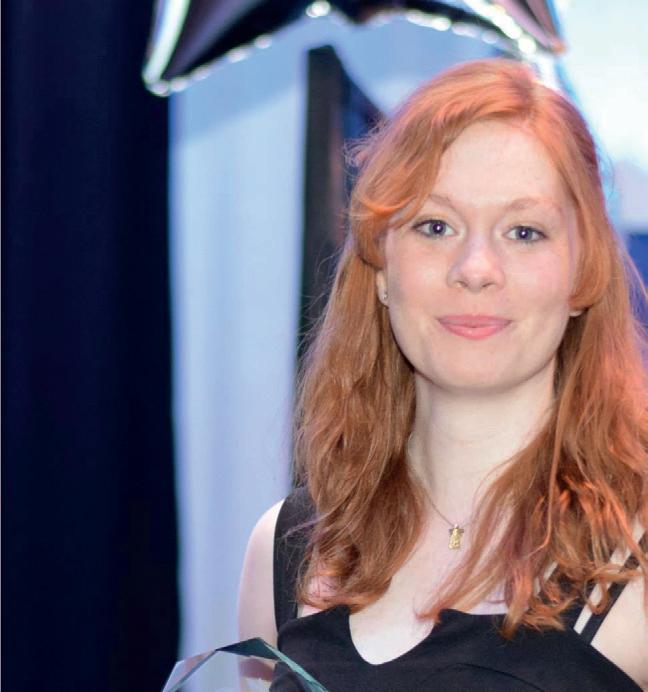
Opinions expressed in editorials are not reflective of Cardiff Students’ Union, who act as the publisher of Gair Rhydd in legal terms, and should not be considered official communications or the organisation’s stance. Gair Rhydd is a post office registered newspaper.
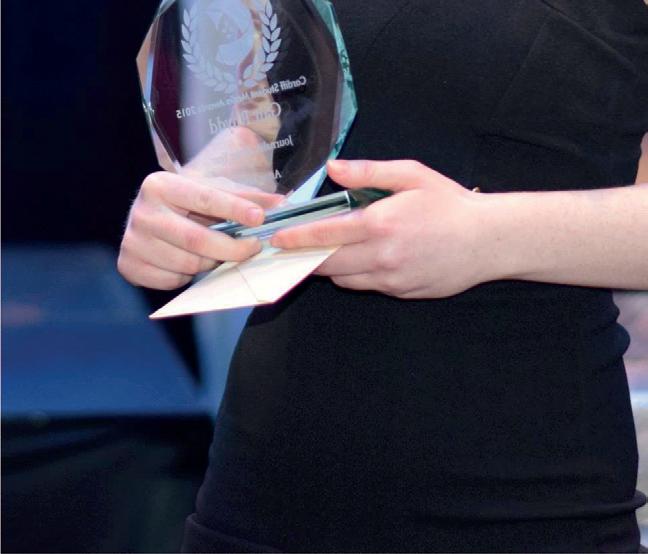

Tere’s one issue left of this year’s Gair Rhydd, meaning that it’s almost time for this year’s team to pass the baton to the next generation. Michael O’Connell-Davidson will hand over to Joseph Atkinson as Editor-in-Chief, and the current section editors are interviewing their replacements. Anyone who will be enrolled at Cardiff University next year has the right to apply! Whether you’re impressed by how Gair Rhydd is currently run or you feel that our sections need improvement, we welcome all applications. Tere are opportunities to be an editor of any of our sections: News, Politics, Science, Comment, Advice, Taf-Od, Park Life, Societies and Sport. As an editor you will be responsible for sourcing content to go into the newspaper each week. It’ll be your job to distribute articles, either finding contributors or writing your own pieces. You and your co-editors will then layout the articles on InDesign, find or take photos to match each piece and arrange titles and subtitles as appropriate. Becoming a section editor is a big responsibility but is highly rewarding. You’ll be expected to find and help develop contributors, who may go on to become section editors in future. A good understanding of your audience - your peers at Cardiff University - is a must. But each week you’ll have physical evidence of your hard work and each week you’ll have opportunities to improve your writing and design skills. Whether you’re looking
to go into a career in journalism or not, having editorial experience would be priceless experience on anyone’s CV. Gair Rhydd alumni include newsnight’s Meirion Jones, VICE News’ Ben Bryant, and Huw Edwards of the BBC.
Gair Rhydd is a learning experience. We do not expect applicants to be professional level - rather, we are looking for individuals with an understanding of what Gair Rhydd does and who Gair Rhydd is for. Training will be provided, so applicants should consider not what they can do but what they would like to do before applying. We are also looking for a columnist. Tis person would be expected to write one piece on any topic of their choosing every week whether humorous or serious. We want someone who can effectively voice their opinions on topical matters and provide us with a good quality column. Candidates selected for interview will hear back within 24 hours and will be asked to attend an interview either in person, by phone or on skype with the current section editors.
If you want to see your name in print, just like those to the left of this article, take a chance! Simply send a quick email to editor@gairrhydd. com and we’ll reply with an application form for you to fill out. We welcome all kinds of people and we want to hear your ideas. Good luck to all those who apply, and we look forward to welcoming new faces onto the team!
 Joe Atkinson
Joe Atkinson
Following a series of Gair Rhydd investigations into the MEDIC Forward scheme that has put forward plans to disinvest from areas of the university’s medical school, Professsor Alan Williams, whose job and Ionic Cell Signalling programme were considered under threat, has been informed that his role is now safe from the planned cuts. Te revelation comes after Professor John Bligh, the Dean of the Medical School, claimed that the prospective Medic Forward cuts would help keep his school “ahead of the competition.”
Te Guardian’s 2016 University league tables saw Cardiff University slip one place from the 26th to 27th best university in the United Kingdom. Te tables also showed that the university was the best to attend for ‘dentistry’ and ‘journalism, publishing and public relations’ courses.
The football season is strolling to its conclusion, leaving many of us confused as to what to do at the weekend
Te Students’ Union volunteering service, Student Volunteering Cardiff (SVC), is moving out of its Union offices to be replaced by a new in-house union-run service named Cardiff Volunteering (CV). SVC, a registered charity that utilises the services of over 900 students who volunteer to work with the disadvantaged around Cardiff
Professor Dianna Huffaker of the University of California, Los Angeles, has been made chairwoman of a new research lab at the university. Prof Huffaker will head up advanced engineering and materials, and her laboratory will research nanotechnology that can be used in smartphones and tablets. She is an expert in compound semiconductors, a piece of nanotechnology key to the working of the aforementioned technology.
Cardiff University, along with Swansea and Bangor universities, was awarded £2,249,927 to lead the National Centre for Population Health and Wellbeing Research. Te funding, provided by Health and Care Research Wales, will support the all-Wales Research Centre’s aim to help improve the health and wellbeing of the population of the country.
David Cameron described the first Conservative Queen’s Speech in nearly 20 years as a “programme for working people”, that included plans to ban increases in income tax, VAT and national insurance over the next five years, and to provide 30 hours of free childcare per week for three to four-year-old children by 2017. Other plans outlined by Queen Elizabeth II included measures to increase devolution to Scotland, Wales and Northern Ireland, and the promise of an EU referendum before the end of 2017.
Former Prime Minister Tony Blair resigned from his role as a Middle East envoy. Te former Labour leader represented the USA, Russia, the UN and the EU in the role that he will leave in the next month after he fulfils “outstanding commitments”. Blair took the role in 2007 hours after stepping down as Prime Minister, and plans to “remain active” in a more informal capacity in the region.
Te Scottish Parliament voted against a bill on assisted dying that could have led to those who terminal or life-shortening illnesses seeking medical assistance to end their own life. Tere were 82 votes against the legislation and 36 for from MSPs. Te bill was originally put forward by MSP Margo McDonald, who died in April 2014 following a long battle with Parkinson’s Disease.
Te football season is strolling to its conclusion, leaving many of us confused as to what to do at the weekend. Chelsea finally picked up the Premier League title that they had all tied up by April, while Norwich City bested Middlesbrough in the Championship play-off final to join AFC Bournemouth and Watford in the top flight next year. Tey replace relegated trio Queens Park Rangers, Burnley and Hull City, the latter of whom were pipped to safety by Newcastle United on a dramatic final day of the Premier League campaign.
Te Republic of Ireland became the first nation to legalise gay marriage by popular vote, as 62 per cent of those who voted were in favour of the legislation change, a total of 1.2 million out of a population of just over 3 million, with just under 750,000 voting against. Te vote resulted in a huge street party in gay district of the country’s capital, Dublin. Te Irish deputy Prime Minister stated that: “ Te people of Ireland have struck a massive blow against discrimination.”
Police in Zurich launched a dawn raid on the offices of the world governing body of football, FIFA, with prosecutors in the United States alleging that officials from the organisation had taken bribes totalling up to $150 million over a 24-year period to influence the outcome on votes for tournament hosting. Te decision to host the 2010 World Cup in South Africa, and the 2018 and 2022 tournaments in Russia and Qatar respectively were under scrutiny. Many senior figures in FIFA, including VicePresident Jeffrey Webb, were placed under arrest.
Te European Commission urged EU members to each take in 40,000 Syrian and Eritrean asylum seekers that land in Italy and Greece over the next two years. Te UK said that it would not partake in such a deal, while France, Spain, Hungary, Slovakia and Estonia also expressed concerns. A final decision will be made in a vote for MEPs of the EU governments.
Up to 20,000 people in the German city of Cologne were forced to abandon thier houses as authorities strove to defuse a one-tonne bomb believed to have been dropped during World War Two. Schools and the city zoo were closed, while 1,100 residents of a retirement facility were also escorted to safety, in what was the city’s largest post-war evacuation.
Embattled FIFA President Sepp Blatter, who has come under increasing pressure to resign following corruption arrests at his organisation (Photographer: Sebastian Bozon/Getty Images)
The Republic of Ireland became the first nation to legalise gay marriage by popular vote
tweet us @gairrhyddnews
email us news@gairrhydd.com
or visit us online at gairrhydd.com/news

Like many subjects pertaining to healthcare, the subject boasts low student-tostaff ratios of just 7.1 – whilst some 90.8% of students described themselves as satisfied with their course.
Te aforementioned institution is the only one of its kind in Wales, but outdid competition from seventeen other British schools of dentistry to seal the top spot with an overall score of one hundred.
Other subjects taught at Cardiff University to fare well in nationwide rankings included Architecture, which was placed second, and Building and Town and Country planning, which ranked third overall.
Teir performance was matched by subjects such as Medicine, Pharmacy and Pharmacology, which were also named third overall in the United Kingdom.
Tere was found to be a strong correlation between the ranking of the subjects and their performance in the 2014 Research Excellence Framework, in which
Cardiff University submitted substantially less output than its immediate competitors.
In the REF standings, Civil and Construction Engineering (which includes Architecture) was ranked 1st in the UK, Communication, Cultural and Media Studies, Library and Information Management placed second and Allied Health Professions, Dentistry, Nursing and Pharmacy fourth overall.
However, a Gair Rhydd investigation in January revealed that only 62% of eligible research was submitted for assessment – compared to an average of 87% for the rest of the top ten, leading to suggestions that Cardiff had manipulated its position.
Tere were also suggestions that whilst several subjects were ranked amongst the top in the UK, the publicity surrounding the release of the rankings failed to mention that others had suffered a dramatic fall in the rankings.
For example, Biosciences fell to fortythird in the UK – leading one Biology student to tell Gair Rhydd that the institution of “spinning the league tables as a win”.
“Realistically we’ve dropped in the tables overall and Biology is now pretty average in national terms. Other universities I applied to with lower entry requirements are now ranked much higher.”
Perhaps embarrassingly for Business students and those who enjoy the rivalry between Cardiff and other local universities, Economics ranked behind Cardiff Metropolitan.
Overall, the University’s ranking fell from twenty-sixth in last year’s standings to twenty-seventh overall – although it remained comfortably the highest-ranking university in Wales.
Tis decline in fortunes follows from Cardiff ’s drop from twenty-third to thirty-first in the Complete University
Guide’s 2015-16 league tables, which are calculated using separate criteria.
In spite of a mixed overall picture, the results of the Guardian’s findings were well received by members of Cardiff University.
Deputy Vice-Chancellor, Professor Elizabeth Treasure, said: “It is very pleasing to see the excellence of our courses recognised in the rankings, with several of them being the best, or amongst the best, in the UK.
“Our overall ranking is stable, following recent rises in the main University rankings such as Te Times and Sunday Times University Guide and the QS World University Rankings.”
However, the institution continues to fall short in its attempts to secure itself a place within the top twenty universities in the UK – a target set established in ‘Te Way Forward’, a Cardiff University plan set to be completed by 2017.


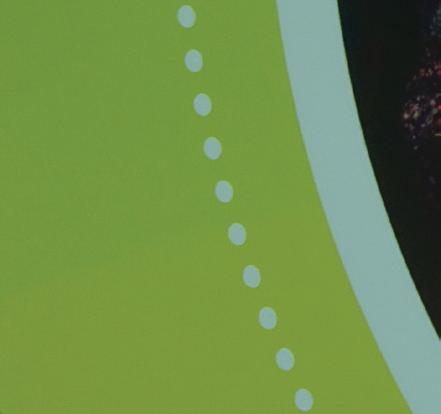
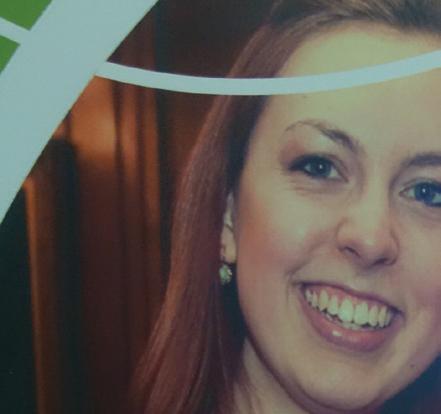
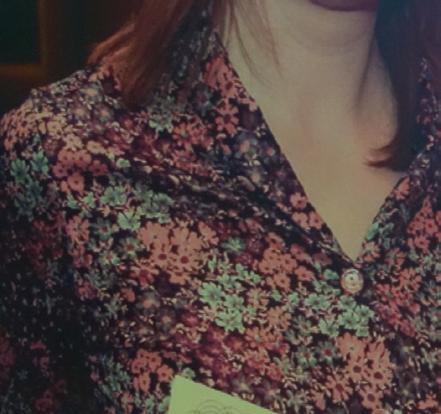
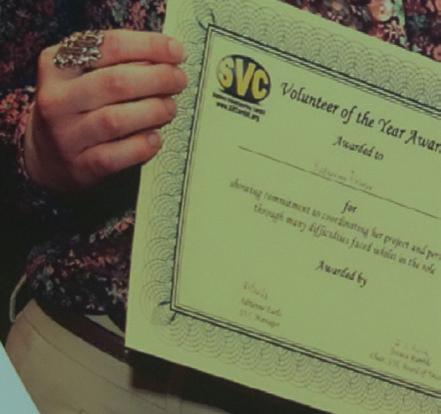
Student Volunteering Cardiff (SVC) is set to close its doors in the Students’ Union after more than 10 years of service.
In a joint statement released by SVC and Cardiff Students’ Union, it was announced that the independent student-led charity will be relocated to outside the Union in order to extend its work with local institutions.
After securing funding from Innovate Trust, with its aims to provide support to those with disabilities, SVC
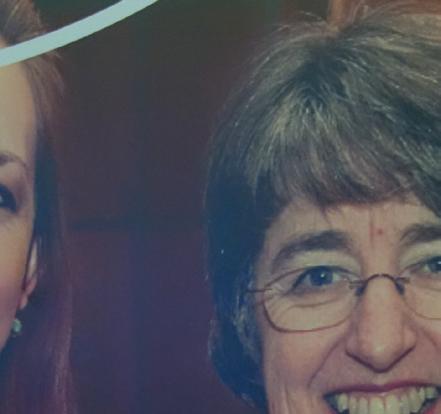
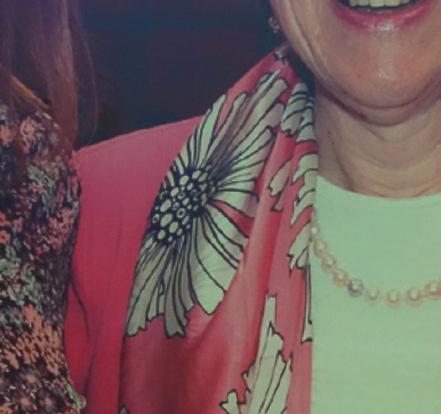

will now be able to provide additional community volunteering opportunities. As a result, it can be confirmed that employees will continue to work for the charity despite its change of location.
Despite the news, it has also been established that the Students’ Union will continue to invest in student volunteering with ‘comparable levels of funding’ to previous years.
This is to ensure that the Union meets its aims to involve 25 per cent
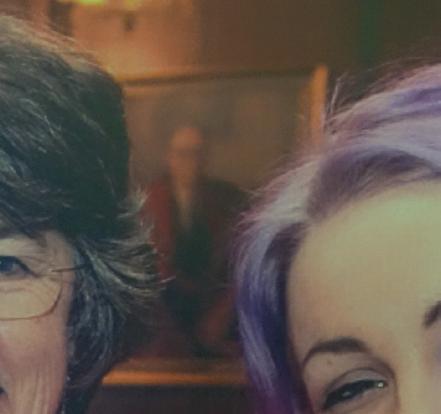



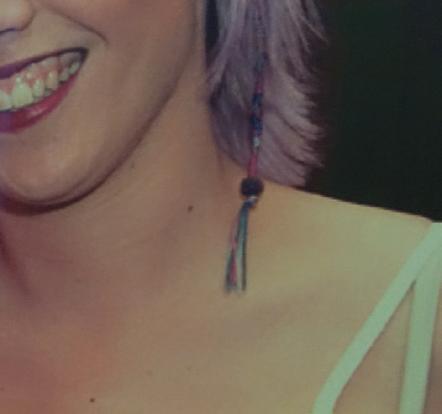


of all students into its volunteering and development services.
In order to replace the services provided by SVC, the Union plan to launch their own student-led volunteering service named Cardiff Volunteering (CV) to expand the volunteering opportunities on offer.
The new service will allow students to take part in extended projects and one-off volunteering events through a new volunteering bureau.


To carry out such services, CV is currently seeking to employ three full-time Volunteers Coordinators to ‘develop, plan, execute and review a wide range of volunteer projects’.
According to a Union spokesperson, SVC and the Union have ‘a long history of working together and look forward to a continued partnership that will significantly expand the opportunities available to Cardiff students and have a positive impact on the local community.’
SVC and the Union have a long history of working together and look forward to a continued partnership
The majority of crimes are caused by side doors and windows left open
”
South Wales Police are celebrating a successful campaign, after visiting over 1,000 houses in Cathays to give students burglary prevention advice when moving out at the end of semester.
Named the ‘Going Home for Holidays’ campaign, police officers visited 1,200 houses in the densely populated student area to warn students about the risk of theft when moving out possessions this summer.
Te work was conducted through the hard work of police student volunteers and the co-operation of Cardiff University.
Previously police student volunteers have helped to raise awareness
of crimes in the Cathays area, including the prevalence of car crime.
A separate campaign called ‘From House to Halls’ has also been launched to educate those moving from halls of residence to student houses.
Tis includes the use of posters advising students to register all property to the database ‘Immobilise’. Police also suggest that students make themselves aware of their responsibilities as a tenant to avoid potential trouble with landlords.
Further legal advice and housing tips and information can be found by visiting the ‘Cardiff Digs’ website’.
Following the rise of bike theft dur-
ing the academic year, students were reminded to use a D-lock when storing bikes in Cathays.
Te news follows after student liaison officers took to the streets to remind students of the importance of taking safety precautions before leaving accommodation to return home during the Christmas and Easter holidays.
A string of break-ins conducted during the Easter holidays has suggested that theft remains a prominent concern in Cardiff. It has been suggested that the majority of crimes are caused by side doors and windows left open during the seasonal warm weather.

It has emerged that reports of two males being ejected from popular student nightclub ‘DC’ for kissing formed a part of South Wales Police’s recommendation to Cardiff council to review the club’s licence.
Te St Mary Street establishment has challenged the claims, which form part of a police dossier of alleged misdemeanours which have led local authorities to review the club’s licence.
Tis particular incident, which occurred last December, reportedly saw the two gay revellers forcibly removed from the premises for their amorous display.
However, the South Wales Echo’s
coverage of the incident provoked a passionate response from DC’s owner on the media outlet’s Facebook page –on which he described the reports as “utter lies”.
Richard Jackson insisted that the ejection had occurred as a result of unsociable behaviour: “I can assure you all they were asked to leave due to rowdy behaviour.”
“My gay staff and friends are furious about this,” he added.
“It wasn’t too long ago that Tom Daley and his partner came in with many of my gay friends - I could list them here but don’t want to drag all this out. To say we are homophobic is
“no longer at risk” after
Medical school previously sent ‘at risk’ letter to heart researcher warning his department may be slashed
Professor Alan Williams is “no longer at risk” of redundancy after Gair Rhydd revealed the academic had been awarded a grant of approximately £1,000,000 from the British Heart Foundation. Te grant was awarded after Williams was told his department was targeted for “disinvestment” due to it being “unsustainable”.
Williams is one of over 60 academics who received ‘at risk’ letters. Te letters warned that recipients may be offered a redundancy package or otherwise deployed elsewhere in the organisation as part of the Medical School’s controversial MEDIC Forward program.
Now, in a stunning about-face, the Dean of the Medical School John Bligh told the BBC that Williams’ post was no longer at risk, and that the £1mil grant from the BHF “would not be returned”. It has yet to be communicated how this fits into the wider consultation period, which continues at time of writing. It is understood that the other academics are still at risk until the consultation period concludes.
MEDIC Forward is the Medical School’s plan to “transform the structure of the school” and “invest in areas of growth for the future,” according to Cardiff University’s spokespeople. But the plan has been plagued with
an outright lie.”
However, an official at LGBT+ rights charity Stonewall Cymru told Media Wales that the way security staff “appear to have treated these men” was “deeply concerning”.
Jackson retorted by claiming that he was “happy to meet with Stonewall to discuss this.”
On the grounds for review of the establishment’s licence, police state that there have been “fourteen recorded incidents relating to assaults” and “fifteen recorded incidents relating to public order and other alcohol related matters”.
Te venue hosts several club nights
that are popular with the student community, including ‘Smack Fridays’ and ‘Amor Saturdays’.
Te problems facing the venue, which is claimed to receive in the region of 300,000 visitors per year, were documented by Gair Rhydd last month.
In the wake of a public consultation period, the police dossier is currently before a licensing sub-committee which is to decide its future.
Te six forms of action open to the authorities range from no sanctions whatsoever to the removal of the premises’ supervisor and the indefinite revocation of DC’s licence.
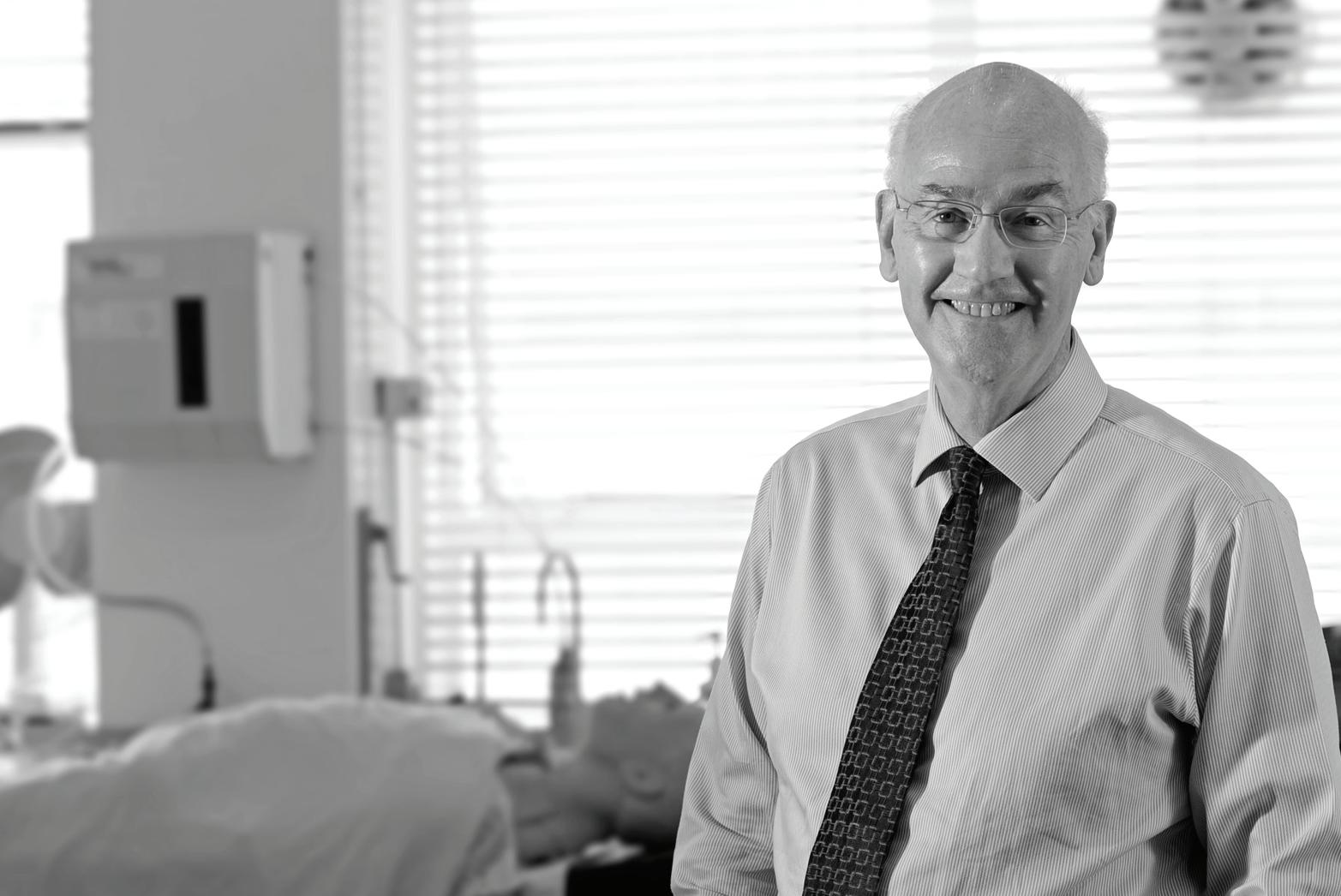
problems from the early stages, despite promises that students “shouldn’t notice work being undertaken” in the short term.
Last month, Gair Rhydd revealed that a number of PhD students would be left without supervisors and forced to start new courses from scratch, and that individuals set to be made redundant had not even received the business cases outlining the reason for their redundancy.
Te British Medical Association has called for all of the at risk letters to be withdrawn. Michael Rees, co-chair of the BMA, said: “It seems to me in terms of process, this is all wrong
... Wales is a small country and what happens in its largest medical school is of great importance to the NHS.”
Prof. Bligh denied claims that patients and the NHS would suffer. He admitted that there were “lessons to be learned” about how plans were communicated to staff and students.
Te consultation continues; however, the implementation of MEDIC Forward appears to have been delayed. Te Medical School now hopes to complete the restructure by Spring 2016, but has previously issued statements that said plans would be put in action by the end of this year. It is unknown why this delay has arisen.
“
My gay staff and friends are furious about this Richard Jackson
”
The plan has been plagued with problems since the early stages
As part of Gair Rhydd’s end of year democracy review, we spoke to the sabbatical officer team about their successes, failures, and everything in between
Te six full-time sabbatical officers are the most important elected officials at Cardiff University Students’ Union, with each assuming responsibility for a key area of the student experience: welfare, sports, Heath Park, education and societies. Tey are led by the highest ranked officer, the Students’ Union President.
Each role is allocated during an annual election period, with the paid roles going to the candidate amassing the most votes from the student body. Te implementation of their manifesto promises is monitored by the Scrutiny Committee, whilst they are expected to play active roles in bodies such as the Student Senate.
Now, at the end of their twelve month terms, we question each with regards to the promises they made to the electorate – and as to whether they’ve managed to fulfil their electoral pledges or fallen short in their attempts to make their stint in office as productive as they had hoped.

During his term as SU President, Elliot Howells has presided over a number of internal disputes, such as the recent Welsh referendum outcome and the petition against Dapper Laughs’ performance. When asked whether such disputes reflect a failure in the Union’s leadership, Howells replied: “Certainly not. Tese are all excellent examples of the power of the student voice.
“During any dispute in an organisation like ours, its leaders will naturally come under scrutiny, which is a testament to their accessibility,” said Howells, adding, “I believe the outcome of each and the way in which the Officers have supported each other and the wider organisation displays strong leadership.”
Howells also praised the work of the Union’s administration staff who have helped the SU achieve several accreditations, including Best Companies Award and Times Top 100 placement. Such national recognition is a step closer to Howells’s original vision of developing the
building to become a ‘world leading Union.’
Previously VP Societies, Howells ran his election campaign on the back of promises to introduce an ‘all-in-one student cash and building access card’, improve transport links between campuses and develop facilities both in the Heath and the Union.
Whilst his vision of all-in-one student card is yet to be rolled out, having worked on the project throughout the year alongside the University Chief Operating Officer, Howells confirmed the project “is now in the hands of the University.”
“As expected, this is a huge project that would involve amending the way in which access to doors across the institution is granted in addition to changing the way payments are made in the various outlets across campus”, the president explained. Because of the scope of the project, planning will have to run over into Claire Blakeway’s term as SU President.
Howells also confirmed that the

“Projects such as our General Election Campaign,
the continuous efforts to diversify our democracy and the fact we were named Officer Team of the Year could
not have been achieved without the continued teamwork and strength of the
officer team.”
University has commissioned a review into its catering provision and that, dependant on the review’s findings, a ‘campus card’ or app will be introduced.
When asked about his original manifesto promise to improve transport links between halls and campuses, Howells explained that, given the project is a “major undertaking”, it will now be implemented “as part of a wider Masterplan around the development of the University’s estate.”
He continued to add that a Boris Bike-style scheme will be implemented across campus, “in addition to significant improvements to Cathays train station and its accessibility for students.
“ Tere are also plans to drastically improve links between the main University campus and the Heath Park campus.
Last month the SU held a referendum on whether or not to install a Welsh Language sabbatical officer.
Te referendum fell by a slim margin – 48 per cent ‘for’, 52 per cent ‘against’. Despite this, the studentwide vote sparked a dialogue on the topic of bilingualism across the University.
Whilst the referendum’s ‘Yes/Ie’ campaigners argued that the bilingual efforts of both the University and SU are poor, Howells claimed “more work has been done this year in the area of bilingualism than ever before.”
He continued: “For the first time, we have an in-house translation service that all Students’ Union departments can access allwoing quick and free translation to ensure all communication has the ability to be provided in both Welsh and English.”
“I have ensured that championing the Welsh language is a requirement of all Sabbatical Officers from the 15/16 academic year onwards and this was added into Officers’ job descriptions pre-elections.”
Howells cites the recent name change of the Union’s Y Plas nightclub, as well as the introduction of a bilingual menu in the Taf as minor changes that illustrate the Union’s Welsh-language efforts. Great measures have been taken in the form of a Welsh Language steering group, comprised of representatives from the Welsh language community, University and Union officers.
Howells explains that: “the group’s first tasks would be to look at giving
Rhys Jenkins was elected VP Education ahead of six other candidates promising to improve assessments and feedback, improve and update libraries and lecture halls, push to have exam timetables released earlier and develop and more independent Student Academic Rep system.
As promised on his manifesto, Jenkins successfully lobbied for the earlier release of exam timetables. This, he believed has ‘several benefits’ for students as it allows more time to plan for revision, relieves some of the stress and pressure placed on students and enables international students and those travelling home for the summer to book flights and trains in advance at a lower cost.
At present exam timetables are released 6 weeks in advance of the examination period. When asked if there is any possibility this could be increased, Jenkins noted that this is ‘about average amongst Russell Group universities’, adding: ‘It would be possible to release provisional timetables earlier however both the University and myself on advice of Reps have decided that this wouldn’t be beneficial as could cause unnecessary stress and confusion if there was a change.’
A further promise on Jenkins’ manifesto was that he would improve assessments and feedback by making sure the organisation and execution of assessments is of a high standard and marking relates to the grad criteria.
more resources and attention to Y Gym Gym, turning it into more of a Student Led Service than a society.
“ Te group would also be responsible for the development of the organisation’s Welsh Language Policy. Te meeting of this group was delayed at the Welsh Language Officer’s request due to the Referendum and work on the policy has now begun internally.”
At the recent AGM, the student body passed a motion to twin Cardiff University with the Islamic University of Gaza. Howells has since worked closely alongside members of the Palestine society “explore their implementation.”
“ Tere are certain governance restrictions in the University that mean the motions can’t be implemented in their entirety,” explained Howells, “but we’re in continuous discussions with relevant teams in the University on how we can achieve the objectives set out by these motions.
Perhaps unbeknownst to many students, Howells (alongside NUS Wales other SU Presidents) lobbied against the Welsh Government’s attempt to scrap the Financial Contingency Fund, a pool of money that offers funding to those in need
of financial assistance. Howells describes the University’s contribution to the Welsh Government’s decision to postpone scrapping the FCF “as significant.”
“Unfortunately, Welsh Government only committed to overturn the decision for this academic year and it has now been confirmed that there will be no hardship funding from Welsh Government available for 15/16,” said Howells.
“We have ensured that the University fund this themselves, for at least the same amount, to ensure our students have access to such funds.”
Howell’s went on to praise this year’s Officer team for having “achieved a great deal for students” and making “some real strides in developing the Union as a whole, including putting it on the map as so much more than a sports and drinking club.”
“Projects such as our General Election Campaign, the continuous efforts to diversify our democracy and the fact we were named Officer Team of the Year by NUS Wales prove this. Tis could not have been achieved without the continued teamwork and strength of the Officer team.”
Jenkins said that he has been working alongside the University to achieve this goal but there is ‘no simple solution’, adding: ‘different subjects, styles of assessment, and indeed different students like feedback in different ways.’
Schools are also being encouraged to use full range of the marking scheme, marking out of 100 rather than out of 90, as Jenkins noted ‘often seems to be the case in Humanities subjects’.
With regards to exam feedback, Jenkins appeared uncertain as to whether students will ever be offered compulsory individual exam feedback, as this ‘seems to be constrained by the staff hours and resources’.
This year the University has worked on introducing an overarching generic assessment criteria which schools should be able to map their criteria against and identify any gaps.
This year Jenkins has also been working alongside Patricia Price, Pro Vice-Chancellor of Cardiff University, to look at why, when compared to their respective counterparts, Black, Minority Ethnic (BME), Disabled and Mature students tend not to attain the same grades at the end of university despite achieving the same entry grades.
When asked what progress has been made on this project Jenkins stated that a decision was made to put this on hold whilst the University is working on the Race Equality Charter Mark, which aims to
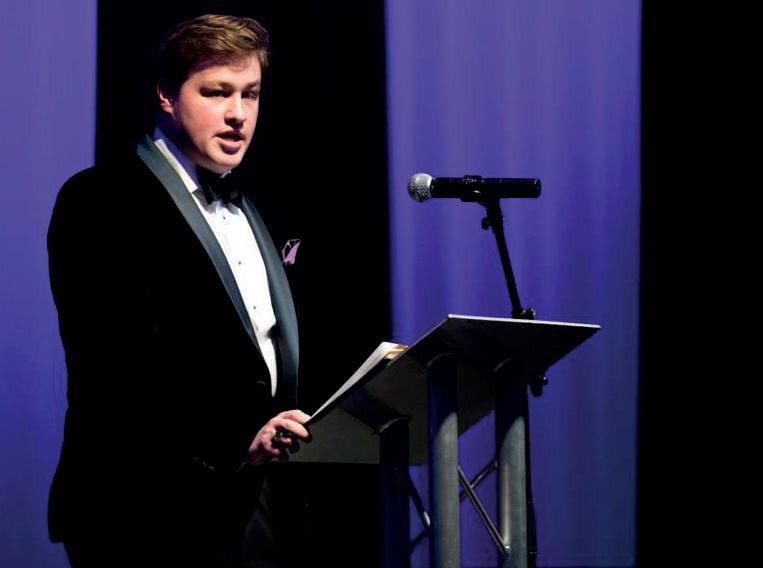
improve the representation and success of ethnic staff and students within the University alongside the Equality Challenge Unit (ECU).
Although this was not part of his manifesto, Jenkins stated that in discussion with the NUS and VP Welfare, Faraz Allaudin, they decided to ‘get the ball rolling’ and put the issue on the radar for incoming campaign officers.
Within his position Jenkins has also had to continue the work of his predecessor, Ollie Wannell, who announced last year that plans had been secured to introduce lecture recording to all schools across the University. Originally plans outlined that this would be implemented by September 2014 but the project ran into difficulties and little progress appears to have been made.
When asked about the project,
“The University and myself are doing a lot to improve assessment. The difficulty is there is no simple solution. Different subjects, styles of assessment, and indeed different students like feedback in different ways.”
Jenkins stated that the main difficulty ‘transpired to be the size of the project’.
‘Very welcomingly the University decided that they wouldn’t settle for second rate solution but invest and get ahead of the curve in terms of learning technology. As a result the project became of a scale that required EU tendering by law, which has delayed the release. I am happy to announce that a software provider has been selected and as of September the first phase of schools will have it in place and a role out will continue over the next year.’
This is in line with the Physical Learning Space project. At present plans have been put in place to update 70 teaching spaces over this summer and a further 70 teaching spaces each summer for the next 5 years.
Many readers may have first spotted Faraz Alauddin being carried around campus on a ‘magic carpet’, a campaign gimmick that secured him the position of VP Welfare - the most contested position of last year’s SU elections. Amongst his manifesto points were promises to bring a GP surgery to Cathays campus, tackle mental health stigma and provide more out-of-hours emotional support to students.
Faraz began his term working alongside local housing campaigners to tackle student housing issues, resulting in the Union’s Housing Charter. Faraz described the Charter as a “really positive step forward,” adding “I don’t think that housing is the kind of issue that can be resolved by an officer team in one year and the housing charter gives a really good platform for each new team to build upon.”
Te University made headlines last year following the controversial ‘homeless cage’ erected outside the Sir Martin Evans building. Following a successful Senate motion, it was intended for the Union to work alongside local homeless charities. When asked whether or not these plans came to fruition, Faraz explained how he
“reached out to a few [charities] regarding projects that students could get involved with.” However, nothing materialised form this and so Faraz hopes the new volunteering service will provide an opportunity to return to and work on this issue.
Perhaps the most ambitious of Faraz’s manifesto promises was to bring a GP surgery to Cathays campus. Te surgery is a sister GP practice to Roath House Surgery and will provide “special sexual health provision as and when the demand arises.”
Faraz has also been working on creating a Halls Associations, a student-led committee for each halls of residence to provide pastoral care and peer support to new students. Te Association will initially be trialled across a handful of residences over the next academic year, including Talybont Gate, Gordon Hall as well as Campus North halls (Aberconway Hall, Column Hall and Column Road Houses).
“It’s a really exciting project and something the SU has never tried before but hopefully will provide extra support for freshers, moving to a new university and a new city,” said Faraz.
“If the first year is successful, the project will expand to other halls of
Bryn Griffiths was elected as VP Sports and AU President, one of the most hotly contested positions, securing more votes than six other candidates running for the position.
In his manifesto he promised to lobby the University to build new multipurpose sports facilities. Over last summer £30,000 was invested in the Strength and Conditioning Centre on Park Place, which houses all club conditioning sessions. In response to this, Griffiths stated that great feedback on the quality of the facility started coming in as soon as clubs arrived back in Cardiff in September’.
Shortly after this a new full-sized floodlit 3G pitch was opened at the University’s Llanrumney Ground.
Griffiths stated that this has ‘greatly reduced the number of fixtures and training sessions lost to bad weather’.
Griffiths also stated that he had been in discussion with Stuart Vanstone, Head of University Sport, and senior staff at the University, to explore the potential options surrounding the Maindy Leisure Centre site following Cardiff Council releasing a tender for the running of the centre. However,
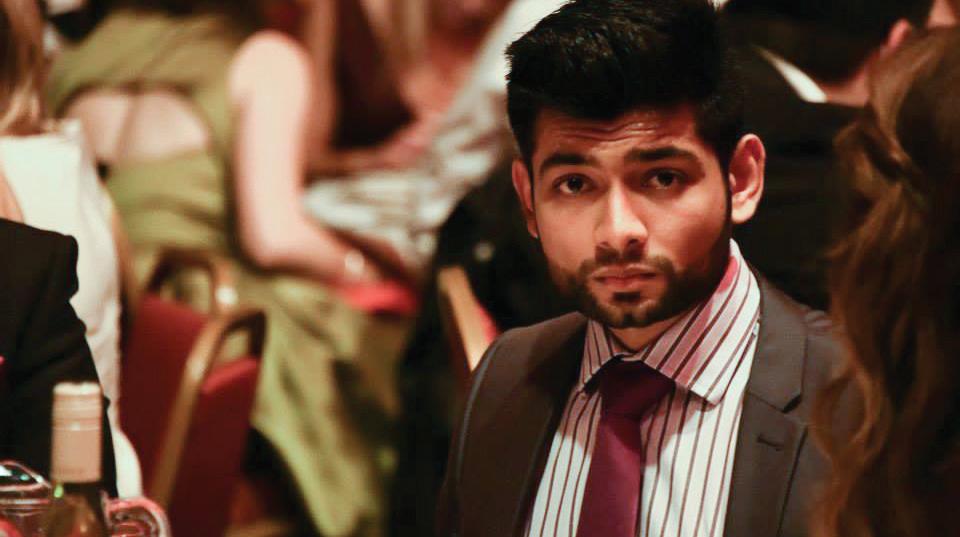
the terms of the lease meant it was ‘not possible for the University to pursue at this time’.
In spite of this, Griffiths stressed that senior staff in the University recognise the need to continue to improve our sports facilities and they will continue to look for potential sites for development. Other potential developments that may be seen in the near future include refurbishment of the astro-pitch at Talybont.
Griffiths also proposed that he would introduce short in-house first aid courses for sports clubs free of charge. Tese were introduced alongside longer, externally accredited courses at a ‘significantly discounted fee’.
Tere were some restrictions, however, to how many courses could be offered in-house due to staff time being stretched following the departure of the Sports Club Coordinator during the Autumn Term.
Griffiths had also proposed to introduce a flexible gym membership option for University gyms. However, he admitted that shortly after taking office last July he discovered that this was ac-
“The Halls Association is a really exciting project and will hopefully provide extra support for freshers moving to a new university and a new city.”

residence too, for which I have created a plan up until 2017. It will take time and there will probably be some setbacks along the way, but within a few years, all of halls of residence should have an association to help look after their members.”
Faraz had also hoped to introduce a ‘green wall’ to the Union, a project which was intended to “clad the external parts of the building in plants”. Faraz commented that it was in “no doubt an ambitious project that would send a clear message of sustainability and eco responsibility.
Unfortunately, with the building works going on around the Students’ Union, Faraz claimed it was “an inappropriate time to put up these walls which may be damaged by the afore-
mentioned works.”
Despite the setback, Faraz maintains that the ‘green wall’ is “still a plausible venture a few years down the line, and one which would no doubt be far more aesthetically pleasing than the current scenario.”
Given the relatively short term served by sabbatical officers, Faraz hopes that staff and future officers will continue the work of the current team, in particular those projects that were stalled by external factors, such as the ‘green wall’ project. Future sabbatical teams would then work from the foundations laid by previous officers in order to have “a cumulative effect and contribute to a bigger project, as oppose to one that starts and finishes with one officer”.

“In my mind offering a monthly membership like other facilities would make our gyms accessible to more students, especially those away on placements for parts of the year.”
tually not possible as their fee setting process for the academic year had already taken place and the budget from the University had been set.
Subsequently, Griffiths met with the Union & University Partnership Group to present the case for a more flexible gym membership. Following this, University Sport have agreed to consider this proposal in their fee setting for the 15/16 academic year, due to take place over the next month.
Griffiths said: ‘In my mind offering a monthly membership like other facilities available in the city would make our gyms accessible to more students, especially those away on placements for parts of the year. It simply needs to happen – this was echoed by Student Director of BUCS, Cassandra Brown of York University who described it as ‘an easy win’.’
Griffiths also reported earlier this year to be in the process of planning additional training conferences for committee members of AU sports clubs. An event was held on the 14th February, organised by Griffiths and Barney Willis, VP Societies. Te event was attended by both sports club and society committee members and aimed to help committee members use their experience to increase employability.
Initial training sessions are held for committee members in September and October but Griffiths said it is a challenge trying to hold sessions later in the year because ‘we have such an amazing range of clubs and societies busy competing in events all across the county it can be difficult to find a time that works for as many people as possible’.
VP Societies, Barney Willis, promised relatively little on his manifesto but has worked on various other projects across the year.
In line with the counter-terrorism legislation coming into effect in July, Willis has been working with Steve Wilford, Director of Membership Services, to develop a system of evaluating guest speaker requests by societies that protects the free exchange of ideas on campus.
Tere is now a system in place whereby checks are run before requests are passed on to the University. According to Willis this has ‘ensured requests are dealt with quickly’ and ‘the vast majority of speakers approved’.
He added: ‘We haven’t received complaints from students as such but where students have had requests turned down, we have worked with them to ensure they have enough notice to organise new speakers.’
‘As for implementation, everything is running already so that we are prepared for the law coming into effect in July.’
Steered by feedback from last year’s Societies Council, Willis made increasing the availability of performance space one of his priorities for the year. After presenting a paper to the University Leadership outlining
the problem, Willis claimed to have had ‘two big victories on this front’.
Te University has committed to including flexible student space in the upcoming Centre for Student Life and Willis alongside the other officers has lobbied the University to fund a renovation of CF10.
Plans to turn the café into a multipurpose rehearsal and performance space have been met with some opposition from students who have set up an online petition against the action. In spite of this, the funding request has been approved and Willis claimed they are now in the process of consulting the relevant student groups concerning the type of flooring they want.
Willis said he is ‘thrilled’ about the prospect of this space opening early in the upcoming academic year.
Willis this year also enjoyed the success of society showcases, Fringe Festival and Go Global, which he attributed to ‘societies taking ownership of the organisation of events’.
He said: ‘ Te transfer of Fringe from a primarily Union-organised week to a society led venture saw attendance at all events (including the Variety evening we organised) shoot up.’
‘My advice to my successor is to keep this going and encourage societies to take ownership of the event. If
Clare Blakeway ran for the position of VP Heath Park uncontested promising to let the voice of Heath Park students be heard.
As part of her manifesto Blakeway planned to introduce a peer assisted learning app for Heath students. Tis, she said, is due to be completed by the end of September.
Blakeway claimed that ‘fantastic progress’ has been made towards developing the app, adding: ‘we have already filmed radiographic positioning, communication skills and a caring through welsh medium which aims to help students learn basic welsh which they can then use on placement. We have also been working on an anatomy, drugs and physiotherapy massage section for the app too.’
Plans have also been approved to renovate the Heath Hub and IV Lounge, and work is due to begin on 1st July and completed in time for the start of the upcoming academic year. Blakeway acknowledged that the renovation plans were initially delayed, something which she attributed to ‘the planning process taking longer

“The transfer of Fringe from a primarily Union organised week to a society led venture saw attendance at all events (including the Variety evening we organised) shoot up.”
you support societies to do that and add a few Union organised events for good measure, I am sure Fringe will continue to grow.’
As for Go Global, Willis added that ‘the event could be expanded to offer greater interactivity between the audience and the cultures on display.’
Tis year sexual health has been a hot topic within the University. At Willis’ request, sexual health awareness society ‘SHAG’ compiled a report on sexual health provision at Cardiff University and other comparable universities. Tis concluded
that Cardiff was lagging behind in terms of sexual health provision.
According to Willis the University was ‘very receptive to this feedback’ and he has been working with VP Welfare, Faraz Allaudin, to ensure that the newly opened GP clinic on Park Place is equipped with ‘dedicated sexual health provision’. He added: ‘although there is more to campaign on with this issue, I am happy to have had a chance to increase the profile of the issue on campus – I hope next year’s officers continue build on what we have done this year.’
than planned’.
Tis year has been particularly difficult for Heath students on placements, given the increasing pressure which is being placed on the Welsh NHS. Earlier this year Gair Rhydd reported the difficulties students were facing, revealing that although many students were dissatisfied with the support they were given on their placements they felt unable to speak out about it for fear of the ramifications.
In response to this Blakeway said she has created ‘new anonymous channels in which students can give placement feedback’ which ‘aim to encourage confidence in placement students to provide useful feedback’. She added: ‘I will use the feedback from these channels to ensure the university understands and meets the needs of placement students.’
Blakeway also successfully introduced the first ever Medics Varsity this year. When asked whether or not this is set to continue she said: ‘I am confident that Medics Varsity will continue next year, and I am sure that
“I will use the feedback from these new anonymous channels to ensure the university understands and meets the needs of placement students.”
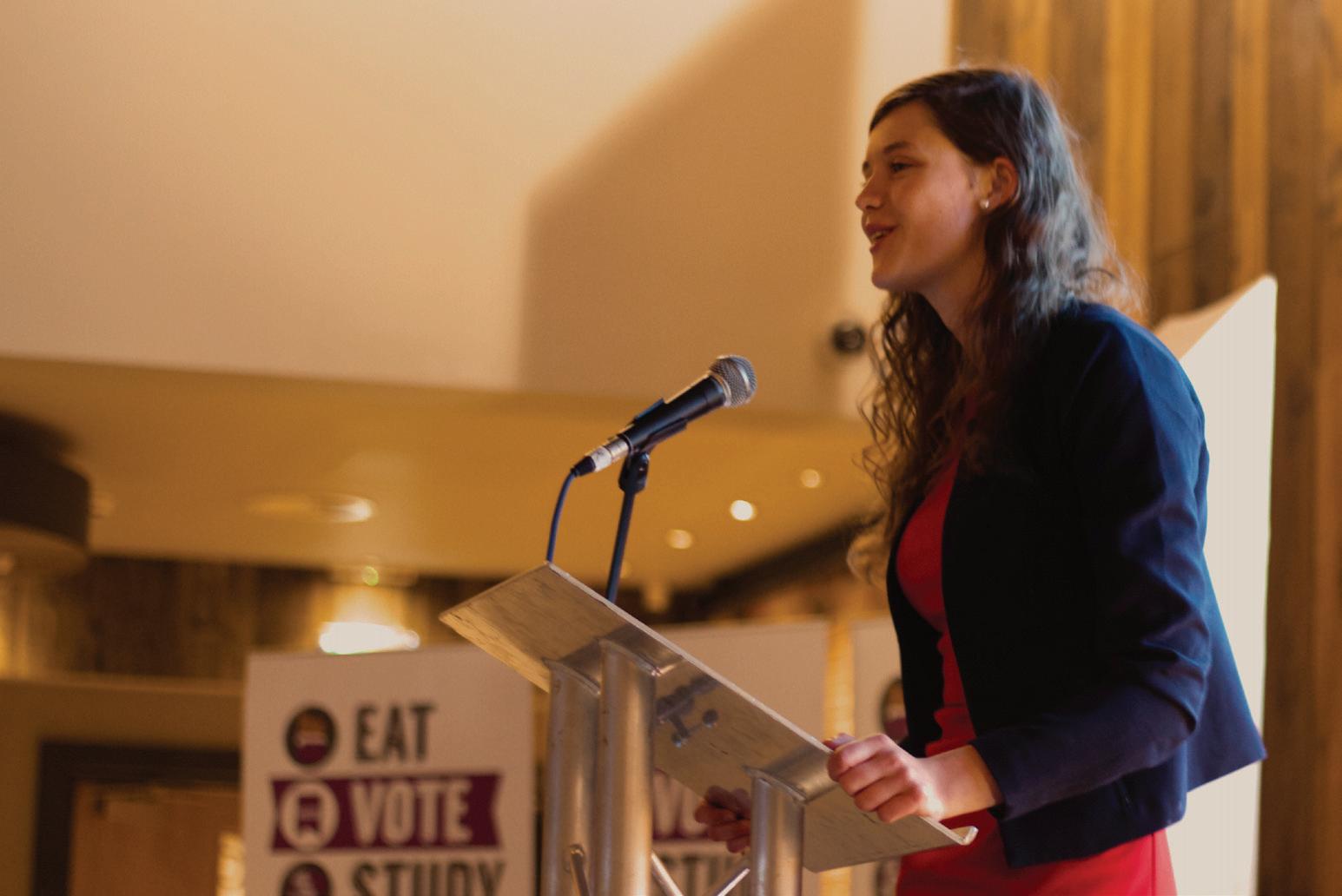
Katey (VP Heath elect) will be a key organiser of the event as well as Sam Parsons (VP Sports and AU president elect).’
Blakeway had also hoped to hold a sports event called the ‘Healthcare Games’ this year but this was cancelled. In response to this she said: ‘Te healthcare games was unfortunately cancelled as we had several teams drop out of the event at the very last minute which unfortunately meant that we didn’t have enough
teams to compete.’
Contrary to the Healthcare Games, Heath RAG preformed very well this year. A number of events were held throughout the year, including: ; a sponsored wax, 24 hour cyclathon and cake sales. Blakeway said she was really proud of RAG’s events which raised a total of £5,499.40.
She added: ‘Heath RAG has always been an annual fundraising event on the campus and I hope that it will continue to do so.’
As Accessibility and Disabilities Officer, Vidya Brainerd has worked to hold weekly drop-in sessions with students to discuss queries and concerns. However, despite efforts to involve students, Brainerd stated that the drop-in sessions ‘didn’t work’ due to a lack of participation.
‘I didn’t get interest at all and noone replied to any of my invitations’,
she explained. Despite this, Brainerd has continued to help people through online facilities by responding to emails and messages on social media.
However, in line with Brainerd’s aims at the start of the year, efforts to improve accessibility within the Union have proved markedly more successful. Tis can be seen as the Accessi-
As Mature Students Officer, Jonathan Gilmore has focused on reestablishing a Mature Student’s Association. As a result, a committee for the association has been created with var-
As Women’s officer, Laura Carter promised in her original manifesto to encourage greater ‘female participation in Union activities’. After promising to celebrate the ‘abilities, diversities and accomplish-
ious positions filled for the next academic year, including a chair, social secretary, Heath park representative and treasurer. In fitting with promises to ‘create a Facebook page to share our tips and
bility and Disabilities Officer, working with other officers, conducted equality and diversity training to sports teams and societies members.
Despite aims to improve the accessibility of societies and sports clubs, it was acknowledged in the last scrutiny meeting of the year that it is difficult to know how to cater for students with a wide range of issues.
‘Trying to figure out a way of including all is proving to be difficult’.
Brainerd also addressed her promise to work with other part-time officers as she explained that work has been done during Women’s Week to encourage disabled students to run for elections.
experiences with future students’, Gilmore has ensured that the Mature Students association has an increasing social media presence, with over one hundred members to date. However, he admitted that ‘the mature students most in need of help are hardest to engage with’, with some people reluctant to participate in online resources. Minutes for the last officer scrutiny
Other achievements include the creation of a ‘pro-choice’ campaign during the academic year, with information talks and a film night.
ments of female students’, Carter helped to establish Women’s Week, which took place from March 4th to 9th. Tis included planning events such as ‘Cardiff Women in Science’ and a Liberation Panel Discussion.
Taz Alam
As a newly created position this year, Black and Ethnics’ Minority (BME) Officer Taz Alam has worked on achieving ‘integration, unity and empowering students’ within the Students’ Union.
Promises to raise awareness of the Union’s ‘Zero Tolerance’ policy against sexual harassment remain on going, as Carter acknowledged that effort should be made to ensure that ‘procedures are being followed’. According to Carter, the following ‘Can’t Touch this cam-
students can get involved and improve awareness of the role of BME officer.
In order to work with pre-existing Student Support and Mind Cardiff, Brainerd is currently training to be a Trive consultant in order to provide free therapy to students. Tis is to be completed during the summer.
As Accessibility and Disabilities Officer, effort has also been made to tackle different disabilities, including invisible and mental challenges faced by students.
According to Brainerd, her biggest achievement of the year has been renaming the position of Students with Disabilities Officer to Accessibility and Disabilities Officer. Te decision was approved by Student Senate earlier this week.

meeting reveal that more projects are forthcoming for the Mature Students officer. Tis includes holding meetings over the summer in order to plan events for the next academic year, and building closer ties with the VP Postgraduate officers. However, it remains unsure whilst such projects were not undertaken earlier in the academic year alongside the creation of the Facebook page.

paign’ launched by the Union has received ‘really strong support so far’.
However, despite promising to make smear tests available on-campus, no mention of the development was made of this aim on the Students’ Union website or during the end of year scrutiny meeting.
Other difficulties faced by the Women’s Association include a failure to fill all positions on the committee, including the role of LGBT+ and Heath Park Rep.
spiration after attending NUS meetings].’

Focussing mainly on women’s issues, Alam worked alongside the Women’s Association in order to organise events for Women’s Week, including the Liberation Panel Talk. She also helped to organise an International Women’s Day event, in which Alam talked about her role as BME officer.
This year’s LGBT+ Officer Sam Cook has been responsible for splitting the LGBT+ Officer role into two positions: LGBT+ and LGBT+ Women’s role. As a result of his work, a committee restructure has been made to accommodate the two officer roles and formal job descriptions have been created.
In addition, the BME Officer created an ‘Update Video’ in order to explain how
Despite admitting in scrutiny meetings that ‘I haven’t organised many events myself’, Alam explained that progress has been made during the year to make students aware of the position of BME Officer.
During the year, it was noted that difficulties have been caused due to the role’s new position established this year. As such Alam explained that ‘there were so many things that I wanted to do [after gaining in-
only six out seven delegates were able to attend the NUS conference.
In order to raise further awareness of Bi*, Trans* and + identities, the part-time officer also helped to organise a motion at the annual NUS LGBT conference to rename the organisation to NUS LGBT+ in order to recognise that ‘more identities are represented than just LGBT’. However, due to a lack of resources,
Furthermore, due to both technical problems and time constraints, the part time officer was unable to improve the LGBT+ Association website and investigate producing a mobile app, as originally promised in his manifesto during last year’s student elections.
Despite this, effort has been made to tackle other points raised in Cook’s agenda such as increasing the LGBT+’s Association’s presence during both Fresher’s week and in Heath Park Cam-
Unfortunatley, like many of the events created my part time officers, Alam’s screening of the documentary ‘Passage to India’ was poorly attended. Despite this, it was suggested that those who attended benefitted from the powerful and thought-provoking coverage shown.
With regards to promises made to ‘encourage ethnic minorities (specifically women to run for elections’, it remains unclear whether such objectives have been achieved.

pus. Tis was achieved by providing LGBT+ training at the Heath, which according to Cook was ‘very well attended’. In order to ‘build connections with other universities, students and organisations’, in line with one of his initial aims, Cook helped AU President Bryn Griffiths and Swansea University to organise the hashtag #RainbowLaces at this year’s Varsity. Te event saw student athletes in many events wear rainbow laces to show support for inclusivity in sport regardless of sexual orientation.
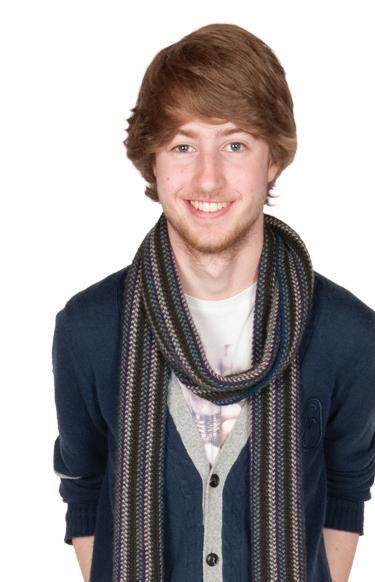
During the academic year, part time officer Ollie Wannell successfully campaigned for the role of Postgraduate Officer to become a full time paid sabbatical position during the AGM.
During the AGM, Wannell outlined the full schedule of postgraduate students and the subsequent difficulty of attending the meetings required to fully carry out the role.
He explained: ‘my biggest obstacle
has been doing the role alongside my studies. Being a Campaign Officer is tough as you have a group of students who you want to do the best for, but ultimately have your own commitments both academic and other to balance.
‘Tis has been particularly difficult in this role as the University requires the Students’ Union to send a postgraduate representative to lots of committees and meetings, along with the VP Education and VP Heath’.
As International Students’ Officer, Megan Jevin has been responsible for communicating with international students and representing their interests at both a University and Union level.
As part of her role, Jevin took part in presenting the Equality and Diversity training sessions offered to socials and sports clubs. Tis was described by the
Officer as a ‘key achievement’ during the academic year, as according to Jevin, the event plays ‘an important part’ of the Students’ Union and societies’. However, this remains the officer’s only key achievement during the academic year.
To improve attendance at the Equality and Diversity, the International Students’ Union suggested that the event be held at the beginning of the
As Ethical and Environmental Officer, Daniel Roberts promised in his manifesto to ensure that the Students’ Union create a ‘high standard of ethical and environmental ideas’. During the year, Roberts prom-
ised in his manifesto to lobby the Union to stop wasting paper, create donation drop-off points in the SU and encourage students to favour local foods.
As Ethical and Environmental Officer, Roberts succeeded in restarting
Steffan Bryn
As part-time Welsh language Officer, Steffan Bryn has worked hard to campaign for the creation of a full-time VP for Welsh language and culture. After taking the matter to both Student Senate and a University-wide referendum, Bryn remains determined to see the creation of a full-time role put in place.
‘I am more adamant than ever of the need for a full-time officer for the Welsh language’, he explained. ‘We heard from the NO campaign that there are more effective ways to represent the Welsh language. We’re yet to hear them.’
According to the Welsh language Officer, NUS Wales’ Welsh language Charter notes that there should be one full-time officer responsible for the Welsh language. As such, he concluded that ‘by scattering this responsibility across the job descriptions of every full-time officer, the Union continues to ignore this guidance and fails to represent the Welsh language properly.
A full-time officer trustee, along with staff members, would ensure that the Union considers the Welsh
During his time as Postgraduate Officer, Wannell has also revived the Postgraduate Students’ Association.
Talking to Gair Rhydd, Wannell explained that setting up the postgraduate association was a main concern. “I felt that in order to create a community of postgraduates and improve the experience of postgraduate students with both the Students’ Union and the University, this would require a campaigning group and a social group. Setting up the association was, therefore, an obvious but important first thing to do.”
Te Association has succeeded in holding various events throughout the
year for the next academic year. Meanwhile, the biggest challenge faced by Jevin was retaining the balance between her duties as an officer and her university workload. In a recent scrutiny meeting, the Officer admitted that ‘it’s been increasingly difficult the last few months to keep up with everything’. As a result, it was concluded that ‘I didn’t manage to throw as many events as I wanted.’
As a current second-year, she continued: ‘I wish I had chosen to do it in my third year’.
It was noted that no progress has
and supporting the People and Planet Society. Tis has included holding weekly meetings with high-profile external speakers and organising socials.
Roberts was also responsible for taking a successful motion to Student Senate to call for the University to disinvest in fossil fuels as part of an ongoing campaign.
However, both Roberts and People and Planet were dealt a blow at the start
tional structure of the Students’ Union wasn’t suitable in meeting the challenge of allowing the Welsh language to thrive as a social medium.’
language at every level and in all of its workings.’
Bryn suggests that to fully integate the Welsh language into the SU, as proposed in his manifesto, a ‘full and real bilingualism needs to be achieved through a robust Bilingualism Policy that is central to the SU’s everyday working culture.’
In order to do this, the Officer suggested that ‘the Union must both revise its approach to translation’ and employ a full-time member of staff responsible for overseeing the Bilingualism Policy.
In addition, it was stressed that ‘secondly, and just as importantly, is the whole issue of representation and the Welsh language student voice.’
In his original manifesto during the student elections, Bryn expressed hope that through the organisation of Welsh language activities a ‘bridge’ would be created between the SU and the Welsh speaking community. However, talking to Gair Rhydd, the part time officer stated that ‘it became apparent very soon during my year in office that the present organisa-
year and was nominated for association of the year.
According to Wannell, socials organised by the association have proved popular, and all committee positions have been filled.
‘Tat absolutely goes down to the commitment of the committee to whom I am grateful and indebted for the enthusiasm they brought to the association this year,’ he said.
According to the Postgraduate Officer, the primary difficulties faced over the year include being able to engage with postgraduate students. Tis is seen with masters students as ‘they are only here to do their masters and go’.

been made towards creating a student support service geared specifically towards international students.
Despite this, Jevin concluded that important feedback and information has been collected over the course of the year in order to set a precedent for next year.
Jevin also explained that with international students constituting over 20 per cent of the student population, it can be difficult to ‘get everyone involved’. In order to overcome this, the International Students’ Officer promised to use social media as a method of rectifying this.
of the academic year with the opening of a Starbucks, well known for its unethical sources and policies. It was suggested that the Union should have taken prior consultations with Roberts given the nature of his position.
Talking to the scrutiny committee, Roberts admitted that despite the progress made, the role has entailed more work than anticipated in order to achieve manifesto commitments.

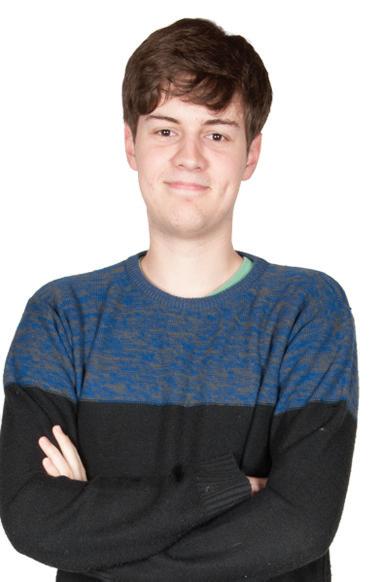
As a result, Bryn explained that in collaboration with Welsh language society Y Gym Gym, he has been lobbying to draw attention to what has been described as the ‘injustices of the Union’s present funding formula for the Welsh language community.’ Tis has included conducting research into the budget allocated towards investing in the Welsh language, found to be between £800 and £900. However, according to the Welsh Language Officer, the investigation has been impeded by a lack of help from other sabbatical officers.
Co-ordination with full-time officers has constituted a major concern by the Welsh language officer, as he elaborated: ‘Welsh language welfare issues need to be addressed- no reply was received from the Welfare Officer regarding Welsh language flats or the new GP surgery.’
It was also noted by Bryn that despite efforts to acquire extra funding for the Rhyng-gol Eisteddfod in Aberystwyth, extra budgets were denied. However, some progress has been made with the introduction of monthly Welsh language music sessions. Ul-
timately though, with what the part time officer describes ‘serious flaws in so many aspects of the Union’s Welsh language provision’, such a victory seems small compared to Bryn’s initial plans to create a established connection to ‘guide people to the Welsh language community’. Overall, despite the obstacles faced during the current academic year, Bryn remains hopeful that the Union will rise to the challenges of hosting the national Inter-college Eisteddfod in March next year.
In his original manifesto promises, Bryn also expressed intentions to develop the Welsh students’ society, Y Gym Gym into a representative and campaigning body. However despite his aims, the Welsh Language Officer suggested that currently the ‘Welsh students’ society is not sufficient in meeting this challenge’ due to an inadequate representative structure within the SU. In spite of this, it was suggested that the imagination of members of the Welsh speaking community was captured through the recent week-long full time Welsh language Officer referendum. As a result, Bryn described himself as ‘immensely proud’, explaining that ‘I can’t express how grateful I am to those who got stuck into the YES campaign despite all the obstacles the Union created for us.’


Thirty-three motions were brought before the Senate – and only three failed to pass in some capacity
The Student Senate is made up of forty people representing various members of the University community: twenty-one seats are reserved for elected senators, ten for randomly selected students, eight for Part Time Officers and two for representatives of the six sabbatical officers. In order for any of the Student Senate’s decision to be binding, a minimum of twenty-one voting participants must be present (50 per cent plus one).
Tis year, the Senate (which meets every three weeks on average) has been tasked with dealing with dealing with some divisive issues – including the control of student media, the referendum on a full time Welsh Language Officer, the effect of the Counter-Terrorism and Security Bill and the Union’s booking of controversial acts such as ‘Dapper Laughs’.
Senators Jake Smith, Madhura Kanade, Joshua Green and Olivier van den Bent-Kelly agreed to give their personal views about the trials and triumphs of the Student Senate and some of the difficult issues they have faced this year.
Over the course of the academic year’s five meetings, thirty-three motions were brought before the Senate – and only three failed to pass in some capacity. When asked whether this represents an insufficient level of scrutiny, Green suggested otherwise.
“We debated all of the motions that passed but, of course, some were solid enough to justify little debate,” he said, adding that the body can “act both as a force of scrutiny and be progressive”.
Smith elaborated on this, explaining that “few motions are voted down because it is often the case that proposers withdraw their motion if they decide it needs more work or Senate decides it is best not to vote on a motion”, with an example of the latter being that “it might be better dealt with in a different body”.
“I would take the fact that only three motions failed to pass as a positive sign, an indication that Student Senate is functioning as it was intended.” Kanade said.
Tere has also been some discussion over the mandate held by the Senate, with the senator who attracted the largest vote still gaining the approval of only 0.2 per cent of the university’s population. Tackled over the low turnout for Senate elections, van den BentKelly suggested that “the Senate does have legitimacy” and that it is “up to the students to vote”.
Tis was a view echoed by Smith, who insisted that “the democratic mandate is there whether 10 people turn up to vote or 10,000 as “people have used their voice regardless” –whilst Smith explained that “turnout is naturally suppressed as Senate elections happen only a week or two after Freshers’” but adding that “there are signs of improvement in this area”.
Kanade emphasised the passion that many members have for the role, stating that she “she chose to stand in the election for Student Senate because [she] wanted to be part of a body of students that had the potential to make a difference.”
Having questioned the senators over poor turnout amongst voters, we also took the members to task over the fact that the Senate itself has often seen a poor turnout; with one meeting being postponed through a failure to attain the presence of the necessary twenty-one members and the role of chair, changing hands several times.
Smith told Gair Rhydd that the postponed meeting happened in the wake of Election Week, when participating senators “needed time to unwind”, whilst other absences can be explained by the need for participants to “balance their commitments” amidst instances where “life simply got in the way”.
Less forgiving was Kanade, who acknowledged that “maybe something more could be done to ensure that senators attend at least a certain number of meetings per year.”
Green admitted that the “chair issue” had been “unfortunate” but posed no long term issue as the role was reassigned on a meeting-by-meeting basis, although he conceded that there “might be some apathetic elected senators” as a result of a “lack of awareness”.
Our analysis moved on to some of the motions being debated – including the proposed by-election for the position of VP Media and Marketing was passed by the Senate, but their decision was hotly disputed by the various factions of Student Media and eventually overturned.
Kanade explained that the main objection amongst the Senate was that
“democracy was not being complied with”, adding that many felt that “such a decision should be left to all Cardiff University students.”
Asked of the possibility of a disconnect between the Student Senate and the wider student population, Smith said that “it’s hard to know what the wider opinion of the student body was” whilst emphasising that “after a long debate and a vote the Senate did choose to oppose the reorganisation plan put forward by the sabbatical officers and supported by student media”.
On the topic of whether the relationship between student media and the Senate had been irreparably damaged, he expressed confidence that “different sections of the student community can disagree on an issue at hand and still have a good working relationship.”
Green acknowledged that “people were not convinced by the arguments presented that day”, but insisted that he “was not displeased” when the Board of Trustees moved to overturn their ruling as “the right course of action was taken”.
However, the Senator said that there were times when the relationship between Senate and student media got “very bitter and nasty”, which he suggested could lead people to be “disenfranchised with student politics”.
Another point of prolonged contention was the Senate’s failure to pass Welsh Language Officer Steffan Bryn’s call for a referendum on the creation of a full-time position, although the
“
” Different sections of the student community can disagree on an issue at hand and still have a good working relationship Jake Smith, Student Senator
referendum was subsequently held after a petition attracted five hundred student signatures and the proposal defeated.
Rather than being a sign of a disconnect between the Student Senate and the community it represents, van den Bent-Kelly explained that the failure to pass the motion and its subsequent appearance at the Annual General Meeting “shows a willingness on the behalf of Senate to engage with the student community”.
Green agreed, adding that “I was someone who was against it because we had just had our AMM and I felt that for proper democratic procedure it should have appeared there,” but insisted that Senate “needs to work with the Welsh Language Officer and with each other to promote and strengthen the legitimacy of the language.”
Te future role of the Senate in fixing relations between the ‘Yes’ campaign and the Union was emphasised by Smith, who emphasised that “we unanimously passed Steffan [Bryn]’s motion to adopt the NUS Wales ‘Welsh Language Charter’”, which he described as “a significant document” in the protection and promotion of the language.
Te relevance of the Student Senate with regards to issues which affect the University over the Students’ Union has also been questioned, with issues such as divestment in fossil fuel ulti-
mately not within the Union’s control. However, Smith said that he “believes there is” a place for the Student Senate in the debate surrounding such matters and that “every motion Senate passes mandates the full time officers to fulfil that motion”.
“It was a lobbying motion,” Green explained. “I am aware that it is a little stuck with opposition from the University but if the Senate makes a decision that is out of its jurisdiction then the Board of Trustees steps in.”
“We debated what was put in front of us,” Kanade offered. “I don’t know if progress has been made.”
Not all of the measures implemented by the Student Senate proved as difficult or divisive, with the body passing measures which attracted more widespread support – amongst them the ‘Students not Suspects’ motion and new measures arising from the booking of internet comedian ‘Dapper Laughs’.
Te latter was something brought up by Smith when asked which measures he had been most proud to be involved in, claiming that the prospect of the comedian performing at Cardiff University Students’ Union “rightly angered many students”. He added that by “enforcing the Union’s own anti-lad policy” he hoped that there was “a precedent in the future that the union leadership can’t sidestep their own policies.”
Te same areas were highlighted by

In April 2015 I attended the NUS national conference as a representative of Cardiff University SU. I must honestly say that I did not know what to expect. I honestly thought it would be an “ok” few days, but not more than that. What occurred over the next few days was an amazing experience. An experience I will never forget. I met people from all over the UK, I debated policies that will shape student politics and I voted on issues that will affect students up and down the UK. It was an opportunity of a lifetime and one that I look forward to carrying out next year.
Green, who said that the comedian and the ‘Students not Suspects’ motion were two pieces that the Senate “was very proud to push through”.
Kanade was enthusiastic about the Senate’s work surrounding elections, noting that “the motion to make the Students’ Union elections fairer was an important one in my opinion and that the body had worked to provoke “more interest in policies rather than just the gimmicks.”
Other areas were flagged up by van den Bent-Kelly, who said that an update to Union by-laws “should last at least five years”, whilst the body’s rulings on fossil fuel divestment and the taxation of sanitary products were two issues which should have “a big legacy” beyond the life of the current Senate.
Finally, when asked for a personal highlight of their time on the Senate, Smith pinpointed “successfully proposing the policy to bring Cardiff councillors out of City Hall and into the Students’ Union” and work to “introduce new healthier vending machines into the ASSL and Cochrane libraries from next year”.
“My personal highlight from my year on Student Senate was when my motion on carbon monoxide poisoning was passed unanimously,” Kanade said. Green was more emphatic still, stating: “I did chair the last meeting, so I suppose there’s that!”
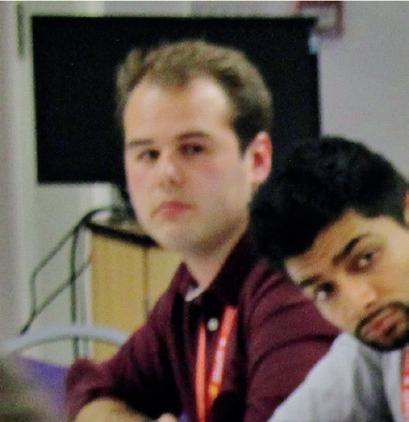
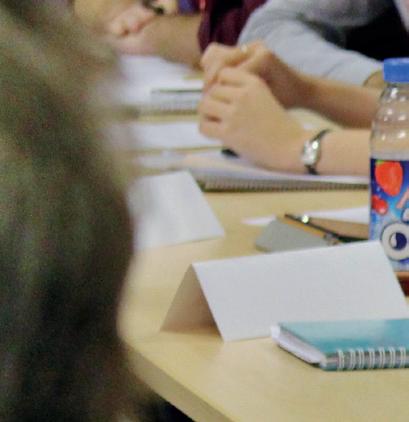

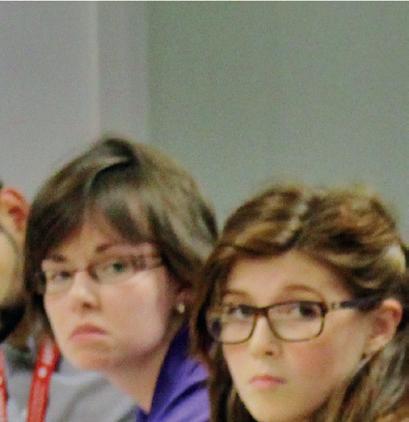
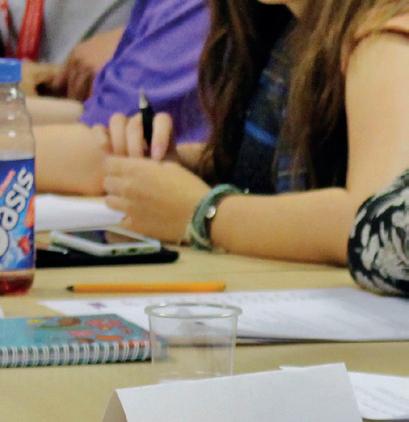
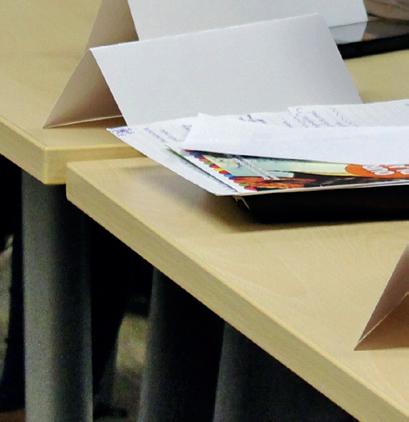





Jake Smith: Leah Hibbs:
As a second (and final) time NUS Conference Delegate I was much looking forward to the cries of ‘I see that delegate there’ and ‘Conference…we have parts’ as the NUS conference returned to Liverpool. I was again bombarded with leaflets from NUS sabbatical position candidates, with scenes reminiscent of Cardiff SU elections on steroids. Te most surprising fact about the leaflets shoved under my nose this year, however, was the increasing number of candidates from left-wing organisations. After the shambles that was November 19th 2014, when the NUS pulled support for one of the biggest national student demos for free education since 2010, I was understandably pessimistic about NUS Conference. It was, surprisingly, another refreshingly left-wing conference (despite the lack of Daniel Cooper’s smooth and dulcet tones), with the free education motion being passed unanimously and left-wing candidates being duly elected. Although there were some down-points, specifically me face-planting the night before Day 2 of conference (completely sober), getting a concussion and smashing my glasses, NUS conference was once again a wonderful experience.
I really enjoyed my time as an NUS Delegate this year representing Cardiff students. We spent a very full three days learning about students’ unions across the UK and deciding the priorities of the student movement for the year ahead. I voted for the NUS to support students’ unions in lobbying for proper university support for students who have interruptions of study and to provide more catering options on campus for students with dietary requirements. I also voted for the NUS to lobby the UK government to remove the age cap on postgraduate loans and to address the huge fall in students who are registered to vote we’ve seen recently. Te NUS is far from perfect and sometimes it is too divided by political factions. However at the end of the day it does represent the collective voice of students throughout Britain. It is our student movement. I hope our students’ union does more in the future to get students engaged with the NUS and make all Cardiff students feel part of something bigger.



June
Young Guns
04/06/15, £12.50 ADV
July
Karyn White
11/07/15, £20 ADV
September
Mark Lanegan Band
04/09/15, £17.50 ADV
October
The Wombats
02/10/15, £17 ADV


Peace
03/10/15, £15 ADV
Years & Years
22/10/15, £17.50 ADV
Catfish and the Bottlemen
29/10/15 - SOLD OUT
November
The Staves
03/11/15, £15 ADV
Everything Everything 07/11/15, £17.50 ADV
Slaves 15/11/15, £13.50 ADV

Happy Mondays
29/11/15, £28.50 ADV
February
Fun Lovin' Criminals 18/02/16, £23.50 ADV
We are eager to recruit as many artists, designers and photographers to make the magazine look as good as possible
Emily Giblett
What do you think? Have your say: advice@ gairrhydd.com
Welcome to our Advice section, where we bring you tips for surviving Cardiff University life Email us: advice@gairrhydd.com
Next year’s Quench editor Emily Giblett shares her journey, and tells us how you can get involved

Inever saw myself as much of a writer before I came to Cardiff, but being at university has a funny way of completely changing your perspective on things like that. Now I’ve finished my first year and Sum Sze Tam, who really should’ve known better, has handed the responsibility of editor-in-chief of Quench magazine on to me.
As a fresher, I was blithely overambitious when it came to extracurricular activities. Tere were highs and lows to such eagerness. Te high points constituting signing up for Quench and CUTV, and the low points including kneeing myself in the face during my cheerleading audition and failing to make the team. Despite being a paid-up member of more societies than I care to mention, choosing to be a part of Cardiff Student Media was the best decision I made, and as long as you are a Cardiff student next year there is nothing to stop you joining the team.
Whether or not you are planning to pursue a career in journalism when you graduate, contributing to Quench magazine is a great place to start getting some hands-on experience, and it is incredibly easy to get onboard. Te editorial team hold fortnightly meetings to decide on the content for each issue, and article pitches are then posted on social media where contributors volunteer to write the pieces (search on Facebook for the group ‘Quench Contributors 2015/16’ and request to join).
As a contributor you are able to choose the articles that you want to
write on a first-come-first-served basis, allowing you to gain writing experience that is as varied or specific as you want it to be. Quench magazine is split into eight sections: Features, Culture, Travel, Fashion and Beauty, Music, Video Games, Film & TV and Food & Drink, so you have the opportunity to write about whatever interests you, whether that’s Gwen Stefani, guacamole, or Game of Trones.
Te widely varied content of each monthly issue gives writers the opportunity to experiment not only with subject matter but format. Sections such as Culture, Film & TV, Food & Drink, Music and Video Games constantly receive opportunities from local and national companies to write reviews that cover anything from new game releases to indie films, albums, gallery openings and local restaurants, and these are often published on our website as well as in print. If you lack confidence in your writing then reviews are a great place to start as the limited word count pushes you to get your point across succinctly whilst retaining the interest of the reader.
As well as shorter pieces, we love to encourage long-form writing from our contributors. Tese articles often take the form of a commentary on current issues that are relevant to the section they appear in, allowing you to push yourself and be noticed for your writing talent. Tis year, Jason Roberts won a national award from the Student Publication Association for his long-form piece in Quench Features on the laughing
gas trade, and through the continued recruitment of new and enthusiastic contributors, we hope to continue this high standard of written content throughout the publication.
Troughout the writing process you will be in contact with your section editor, whose job it is to answer any questions you may have about deadlines, word count and the content of the article itself. Tey will do their best to give you constructive feedback so that you know how to build on the skills that you have already picked up. I appreciate that contributing to the magazine can seem a daunting prospect, especially to those of you who may not have any relevant experience whatsoever, but it is important to remember that the point of student media is to learn from it, as everyone involved continues to do so. And if you’re just reading this because you’re hungry for power, I hope my trajectory from eager-but-oblivious fresher to second year boss-woman convinces you to join us anyway. Te more the merrier. I would not be doing justice to the magazine if I didn’t mention the fantastic design team behind Quench, being led into the next year by Olivia Tomas who is eager to recruit as many artists, designers and photographers as possible to help make the magazine look as good as ever. Flick through any issue from this year and you will notice the abundance of original illustrations that we have commissioned from students that have been kind enough to share their impressive skills with us. In the new academic year we want
to continue to showcase your talents, with a newly renewed focus on photography. If you are interested in contributing your illustrative skills, or got a DSLR for Christmas and fancy yourself as the next Rankin, then get in touch with design@quenchmag. co.uk.
Getting involved in student media has many practical benefits: seeing your name in print, getting useful work experience and having your voice heard to name but a few. But it is equally important to acknowledge the social aspect of working together to create an end product that everyone can be proud of. Working throughout the last year on Quench, I have made great friends and been honoured to learn from the truly fantastic people around me. If you decide to contribute to Quench in the next year, I hope you will enjoy it as much as I have so far.


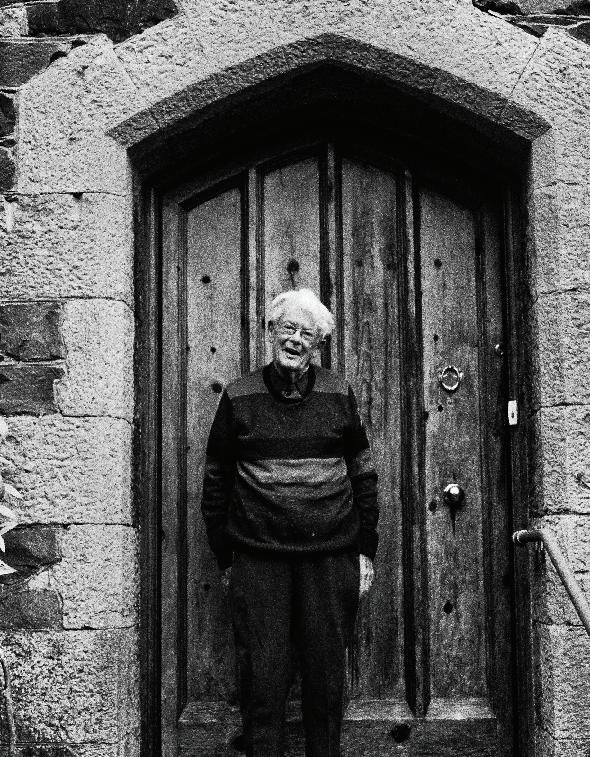


The widely varied content of each issue gives writers the opportunity to experiment
Last
The European Regional Development Fund’s work has the potential to do a great deal - and the Valleys can’t go without it
“ ”
The Welsh Valleys are one of the poorest areas in Europe.
Coming from Ystrad Mynach just outside Caerphilly, I have seen the impact that the EU has had on our country. Te European Regional Development Fund’s work has the potential to do a great deal - and the Valleys can’t go without it.
Living in Cardiff, you’d think Wales had as much money as the Royal Family and the City of London put togetherthere are more private schools here than anywhere else in the land of our fathersin the Valleys where I grew up, however, it’s poor as can be. People are poor, the area is poor. People have consistently been battered by the Tory government in recent years - but the area has been saved by one thing gradually over the last ten years or so: the EU, more specifically the European Regional Development Fund. Tis might not be as obvious because it’s been a very gradual process, but compare things now to how they were ten years ago and you’ll see huge differences.
I’m sure some students from more prosperous areas like Surrey and Buckinghamshire will balk at the kind of scenes that were (and still are) pretty common in the Valleys - can’t afford a real fence? Nick some old pallets and stick them in the hole in the garden wall. Public toilets unfit for use? Don’t rebuild them - just knock them down. In recent years public spaces such as parks and pools have been improved beyond recognition, and buildings such as police stations and hospitals have sprung up.
A prime example is the Pontypridd Lido. As the old joke goes, “the best thing about Pontypridd is the road out of it.” Te Lido was a large swimming pool, opened in 1927 during the height of outdoor swimming’s popularity, when male and female swimmers were made to swim separately. It was created in a beautiful Roman style, and remained popular well after the Second World War. In 1991, after years of neglect, however, it was closed down and effectively abandoned - with
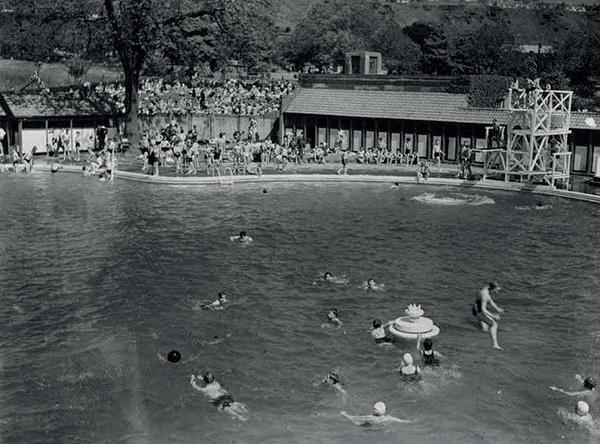
weeds growing from the cracks in the pool with park equipment being stored alongside. Te only way to see in was to climb to the top of the spider-web climbing frame in the playground next door and peer over the scaffold to the frankly eerie sight.
Te Lido is due to re-open this summer thanks to funds from Cadw and the Heritage Lottery Fund, but perhaps most of all due to a grant from the European Regional Development Fund. Te new pool looks to be a flagship for a return to the town’s glory days when the coal industry was at its peak. Tis is just one of a great many parks being redeveloped or established around Wales. Recently I walked through a section of the Taff Trail in the Nelson area that ends at the Rock UK Climbing Centre, and alongside
the path is a set of tanks that use reeds to filter out water that has been contaminated by mining activities over the years. Tis is just one of many sites developed, once again, using ERDF and Welsh Assembly money.
And yet, on the dual carriageway past Llanbradach and into Caerphilly, during the run-up to elections we saw “Vote UKIP” signs up everywhere; talk about shooting yourself in the foot. People need to pay closer attention to the signs in their local parks - where do you think the money came from?
Te EU! And that’s even before I mention all the European students who come to our campus every yearif we leave the EU, their fees will triple and I’m sure institutions in France and Germany will be more than happy to take them instead.
finished? You can’t graduate for free, either
People need to pay closer attention to the signs in their local parks - where do you think the money came from?
Em GatesMost mothers wait expectantly for their child’s graduation. Some anxiously plan their outfits, some triple-check the battery of their cameras, while others just readily prepare themselves with tissues. One thing that is unanimous is that this is possibly the end of a young person’s academic career, and also a great source of pride to the student and their family.
It’s a rite of passage all graduates have the right to perform, a celebration that anyone who completes their three years deserves. But what are the costs of this event?
It’s understood that some costs will arise from the graduation: meals out with family, the obligatory last hurrah in Glam, suits and formal dress – among other things, and there are still other costs to pay.
The necessary robes and graduation caps are hired - at £45 a pop, they aren’t cheap
”
Unfortunately, this event is becoming more and more expensive by the year.
Extra tickets for graduations at Cardiff cost £10 - only two tickets are guaranteed per person, although luckily these tickets (which include your own seat) are free. Te unlikely nature of extra tickets being available and the costs of graduation mean that this might not be an event for the entire family, a shame when this is such a momentous oc-
casion in a young person’s life. Tickets at other universities are even more expensive – some are up to £35. Tese tickets, of course, do not include the additional expenses of travel and accommodation. Te costs of the day itself just keep rising and rising. But what’s worse to think is, that these are just costs for your guests, not even factoring in the expenses for us as students.
On top of the £9000 tuition fees, living maintenance loan, and probable overdraft debt, more costs are piled onto us. Te necessary robes and graduation caps are hired – at £45 a pop, they aren’t cheap. Te optional but ever popular professional photographer will also set you back a fair amount. While there is a programme available within the Students’ Union at Cardiff to help with students are struggling with the financial side of leaving university, it works alongside the current means-tested student loan system, leaving some out of pocket. Tis system is not without its flaws, meaning that people like me whose parents earn a decent wage don’t benefit. In other words, if you have sensibly budgeted for yourself throughout the year but only saved around the £50 mark for graduation, you probably won’t receive
any emergency money from the Financial Contingency Fund. While it may help those who struggle majorly with expenses throughout university, it doesn’t factor in the sudden monetary shock of graduation and the extras it includes. It’s decent of the university to help you with this, as obviously they want us to celebrate just as much as we do – but it is a fatally flawed system when costs involved are not considered. It is unfair that this sudden ex-
pense is sprung on us at the last hurdle of university, but also showcases how money is at the base of all things in university life. Tuition costs, textbooks, printing credit, living expenses and now graduation fees? Tis is a day I’m supposed to look forward to, not worry and panic about the celebration of finishing an important chapter in my life. Well, I’m a year away from graduating, so I suppose I should start saving for it now if I’m ever going to afford it.

The tweet simply highlighted further the hypocrisy underlying the ‘horror’ white people felt at this exclusion
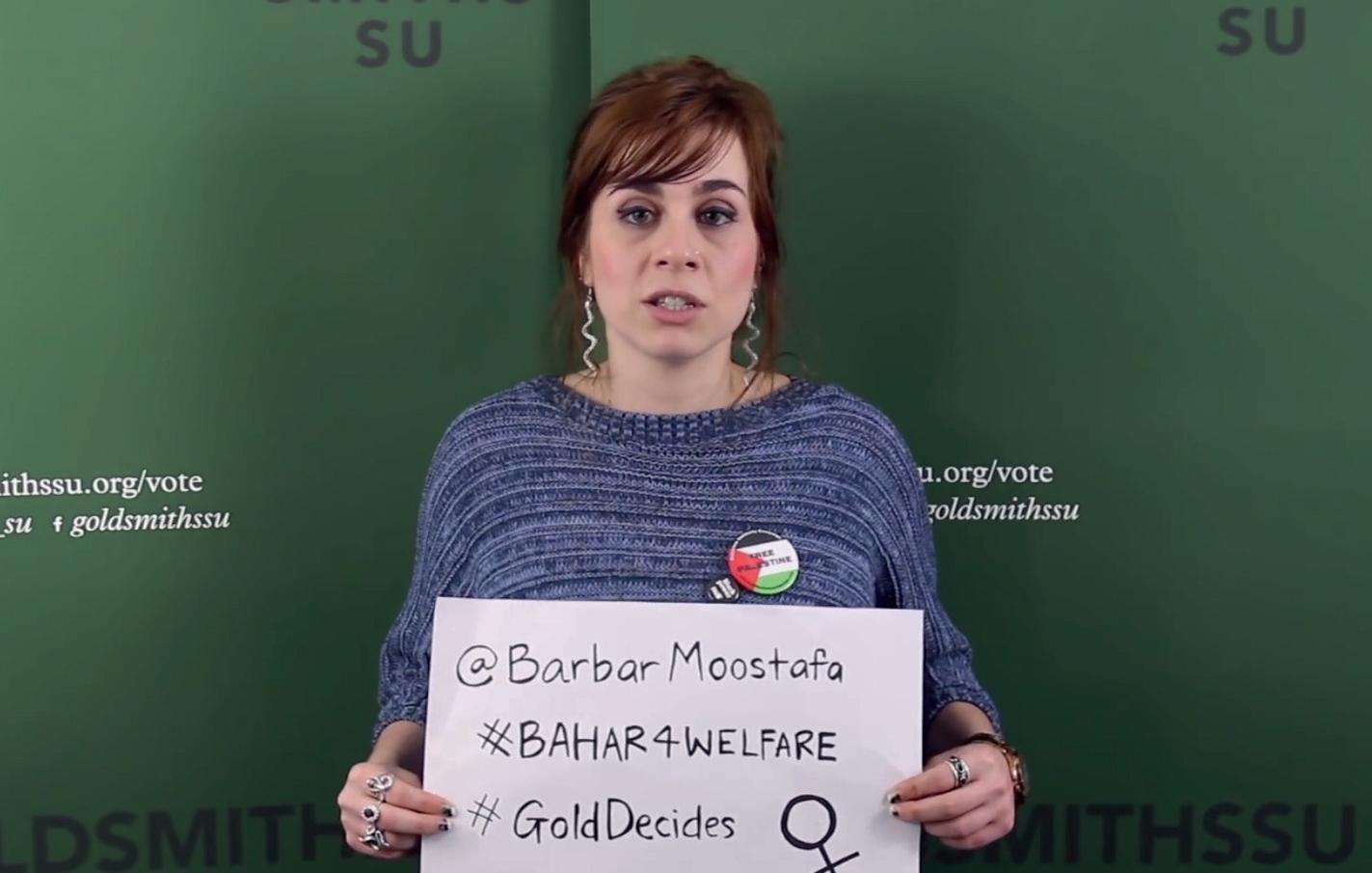
missing the point
Te tweet by Goldsmiths’ student diversity officer has demonstrated a lack of racial and gender understanding in this country
Bahar Mustafa, diversity officer for Goldsmiths University has been at the centre of a racism row in recent weeks. Te controversy began surrounding an anti-racism event at Goldsmiths which asked white people and males not to attend. Tis was in the interests of creating a safe space for non-binary people and BME women. Part of the sentiment behind this was for ethnic minority women at Goldsmiths to lead their own movement and be able to manage themselves without interference, which had previously acted as a burden.
Adding controversy to the debate more recently, Mustafa wrote a tweet which included the hashtag ‘#KillAllWhiteMen’ leading to outrage and the creation of a petition signed by 17,000 people calling for her resignation.
During the initial reaction to Mustafa’s tweets it took me a while to realise the majority of this outrage was serious. Tis in turn led to the realisation that a lot of my friends have underlying racist feelings of white superiority and that a lot of people are seriously missing the humour within this situation.
Mustafa’s tweet has been perceived as a contradiction against her own position, with people suggesting
that by excluding white men from the movement on this occasion and by writing such a tweet she is going against her own ideas about tolerance. To me at least, it seems plainly obvious that this tweet was ironic and meant to highlight the evident differences between experiences of discrimination against white people and men, and the incomparable experiences of discrimination against particularly ethnic minority women on a daily basis. Te controversial tweet simply highlighted further the hypocrisy underlying the ‘horror’ white people felt at this exclusion.
Te sense of irony and humour meant within the tweet has since been pointed out by several commentators and Mustafa herself said that it was one of the ‘in-jokes and ways that many within the queer feminist community use to express themselves’. Te tweet was, of course, not actually calling for the genocide of white men. It does seem that the only people experiencing outrage at her comments were those unable to connect to Mustafa as a person, who experiences daily frustration at our society.
Mustafa’s statement is in no way comparable to recent hashtags which have called for the genocide of all Muslims and more recently
the hashtag which encouraged trans people to kill themselves, people who are already marginalised in society. While the latter hashtags emphasise the deeply ingrained persecution of minority groups in our society, Mustafa’s tweet is a reaction to the receiving end of these prejudices.
A moment of violent expression towards white people is incomparable to the persecution and discrimination faced by ethnic minorities today and can’t be reasonably taken as racist or sexist given the context. Tis is why the tweet has worked in highlighting the differences in racial and gender experience.
I ask those who were outraged to consider what it would be like if that outrage was part of your everyday, and if it was threatening your physical and psychological wellbeing. In general terms, men do not get raped or sexually assaulted on their way home or harassed in the street. White people don’t have to fear being presumed as lesser beings in the workplace or experience police brutality and suspicion. Te offence taken at her words has demonstrated firstly, that we are a hypocritical country and that as onlookers from the outside of such a particular movement, we have a lack of understanding about people’s
wvarying experiences.
Mustafa has been nothing but successful in highlighting the inherent racism and sexism which underlines the charade of tolerance claimed in our society.
One person close to the situation concerning Bahar Mustafa said ‘Bahar stating she “cannot be racist” as she is an ethnic minority woman is correct. Although her comments may upset and make others uncomfortable, they do not work to maintain an institution of systematic oppression.’
Tis has taken a lot of explaining to some and of course, not all males are sexist, and no, not all white people are racist. But white people and males don’t experience the day to day oppression within a system which works for some and not for others. Mustafa is not implicit within a system of racist and patriarchal power which hinders the lives of others and therefore can not be considered racist or sexist on the same terms.
One ethnic minority woman from Goldsmiths summed it up when she said: “In all likelihood- if you’re taking offence; it’s because you just don’t get it.” Tis is the point where I think as a society, we should stop being outraged at people’s struggle and begin to try and understand it.
It does seem that the only people experiencing outrage at her comments were those who are unable to connect to Mustafa as a person who experiences daily frustration at our society

EU Citizens must have a voice in an in/out referendum
Excluding EU citizens to have a vote in the planned referendum is an insult to the work of British-based EuropeansOlivier van den BentKelly
I’m from a family of immigrants.
What such a decision results in is a dilution of the voice of the British public
My mother’s parents moved here from the West coast of Ireland, and my father emigrated to the UK in the late 80s from Holland. My father continues to hold a Dutch passport and citizenship, which thanks to our EU membership, has not inhibited him in any way. But the current government plans to hold a referendum on EU membership has caused a problem. Cameron has stated that EU citizens will be excluded from the voting registration. My father will not be allowed to vote. It seems absolutely bizarre that despite having lived in this country for the last few decades, my father has been refused a vote. He contributes to British society by paying income tax and working pretty damn hard. And in spite of this, he has been refused a vote in the scheduled referendum on the UK in the EU. It isn’t just my father that has been deemed ineligible to vote, but around a million other foreigners have been denied the same right. It isn’t just a ridiculous situation, but an infuriating one. Take a minute to put yourself in his shoes; imagine that the country you’ve lived in for over half your life,
one where you’ve based almost your entire professional life, suddenly states that a referendum that could impact how you work and live is going to occur. And not only that, but you would be unable to have an official voice in the outcome of that decision. How would you honestly feel? Te place you call home has disregarded you as unimportant, and any contribution you’ve made is irrelevant - all because the land of your birth is in a location that is not British or in a Commonwealth country. Ten go to my father and say that you are still against him having a vote in the British referendum on EU membership. What such a decision results in is a dilution of the voice of the British public. To not count individuals such as my father as among that cohort is not just disappointing, but emphatically insulting. For the million or so people that are now void from voting in the referendum, it appears as if the government has said “many thanks for all your work - but that doesn’t hold any weight around here”. My father has been denied of the right to participate in a democratic process - and the reasoning behind it is incredibly poor.
Euro-sceptics who argue that including such nationals would effectively rig the result are hilariously wrong. If you look at every social group then of course you will find preferences. Areas with a high student population are overwhelmingly left wing and labour, that doesn’t mean we simply discount them from voting. All other referendums in Britain have allowed the inclusion of European nationals - why does this have to be different?
British people or those that hold a British passport are not the only group that make up Britain. For Cameron and other MPs to think that is simply pure ignorance. What this decision proves is that it is a calculated move to essentially discount approximately a million potential votes supporting remaining in the EU. After all, it seems highly improbable that these migrants would vote to make working in Britain more difficult.
But predicting that they will contribute to the ‘yes’ camp isn’t a justification for denying a vote to this people. As Christian Allard, an SNP MSP, commented, it is a democratic disgrace to reject inclusivity to attempt to sway the voting figures. Isolating people from referendums
simply because their nationality could conflict with the issue being dealt with is completely indefensible.
Tese are the people that potentially have the most to lose - the sudden need for visas, background checks and a headache of a bureaucratic process. It is essential that their voice is heard too, for the sake that they are the target demographic that will be impacted.
A lot of those in support of Britain leaving the EU seem to just look at migrant statistics, what they need to do is actually realise these are people, real people. And that these individuals will be impacted by the result of this referendum. Tere is no sugar coating it. People will affected by it.
Migrants from the EU that live in Britain have earned the right to be included in the democratic processes of our country. Tey help sustain our country, and no matter your personal opinion on what the result should be on the EU referendum, it should be evident that European nationals should have been granted their vote in the outcome of their adopted homeland. Anything short of that is simply a failure of a legitimate referendum.
It appears as if the government has quite literally gone ‘Many thanks for all your work - but that doesn’t hold any weight around here’

Nowadays, men are encouraged to do things that were, once upon a time, the sole preserve of women
As a male member of the human race, I sometimes think about the unusual nature of masculinity. Usually these thoughts manifest themselves in small but significant ways, like asking myself, “why do I feel emasculated when I shave my balls?” Te answer to that probably lies somewhere deep in my subconscious, but as you can see, these questions are often the most important ones.
Recently, these thoughts have been cropping up more and more. Tis is probably because everywhere I look, I see that the nature of masculinity is undergoing a subtle but significant shift, namely that masculinity is no longer ‘manly’. Nowadays, men are encouraged to do things that were, once upon a time, the sole preserve of women. Tings like talking about their feelings, wearing the colour pink, maybe even exfoliating. In the 70s, if any of your mates down the WMC caught wind that you’d taken your girlfriend to a spa for her birthday (or, God forbid, your birthday), you’d have been met with a snarl and a thorough interrogation. “ARE YOU ONE OF THEM RUDDY POOFTERS LAD?! HAVE THEY INFECTED YOU WITH THEIR DISCO?!”
Tankfully, we now live in a more enlightened time. We’re at a place
where hairless creatine junkies in snapbacks and racer back vests can join hands with tattooed labourers and top-knotted wankers hipsters and envelop themselves in the giant melting pot that is modern masculinity. But, as you might expect, there are men that refuse to acknowledge this new reality. Tankfully though, it’s quite easy to identify them. You can usually find them retweeting LADBible memes, calling any man they happen to meet “boss”, and complaining that their 17-year old girlfriend refuses to acknowledge Steak and Blowjob Day as a real thing. It’ll be no great loss to masculinity, or indeed anyone, if they were to all die of food poisoning bought on by a Nando’s that was just too cheeky.
Our new diverse masculinity has led to a wide range of men presented as the male ideal. Men all over the world can aspire to have the suave of Idris Elba, the body of Tom Hardy and the athleticism of LeBron James, all of whom are clearly very different types of man. But the consequence of all these various forms of masculinity is that it has left us without a figurehead, a person who perfectly encapsulates the very essence of what it means to be a modern man. Until now. Gentlemen, meet the new leader of the masculine renaissance:
Aubrey. Drake. Graham.
Drake represents everything good about the modern man. Firstly, he embodies the new diversity present amongst masculinity. I mean, I don’t know how many mixed-race Canadian Jews there are in this world of 7 billion people, but I bet you could fit them all onto the back of a unicorn. Masculine icons of days gone by tended to only speak to one particular group of people, but not any more. A new multicultural masculinity needs a multicultural spearhead, and Drake fits the bill better than anyone else.
Let’s also not forget that Drake was one of the first rappers to openly talk about his emotions, for which he took A LOT of shit. But this is now expected of men, and rightly so. Gone are the days of men repressing their feelings until their heightened blood pressure eventually causes them to explode. Nowadays (although there’s a lot of work left to do) men are at least acknowledging that yes, feelings are a thing that they have, and they would occasionally like to discuss them. We can thank Drake for being a trailblazer in this regard. Showing emotion doesn’t ever mean you’re a pussy.
Drake didn’t manage to make talking about your emotions cool, but he
managed to make it acceptable. Tis is how Drake works. He’s popular, but not too popular. Cool, but not untouchable. We can laugh at Drake, but we have to respect him, at least a little. Tis is what makes him so relatable, and it’s why he’s the very embodiment of the modern man. Men will look at other men like David Beckham and feel an intense, overwhelming jealousy. Drake doesn’t inspire that. He’s a man who’s famous, wealthy, talented, but still laughed at by most of the public.
Recently a story emerged that Drake had tried to slide into the Instagram DMs of an incredibly popular pornstar, only to be viciously shot down. Was it surprising? No! Was it embarrassing? Yes! Was it something that every man could relate to? Absolutely! Every man has a memory of some sort of horrendous romantic failure, maybe even involving Instagram. (Although probably not involving a pornstar.) Men will continue to learn from Drake, because although his life is different to the vast majority of men in damn near every way, the Instagram debacle proves that he’s still undergoing all the trials and tribulations that modern men must undertake. We walk the same path, but got on different shoes.
Drake flashing his heartwarming smile, without giving up an ounce of his masculinity (Photographer: Mark Blinch/ Reuters)
Masculine icons of days gone by tended to only speak of one particular group of people, but not any more
Celebrate the end of exams in style!
t hursday 11th June – s unday 14th June
What’s included:
* 2 nights award-Winning hotel accommodation
* executive Coach t ravel
Couple Room upgrade +£40
* overnight ferry Crossing
* Continental breakfast
* su amsterdam barcrawl
* Give it a Go itinerary
t his trip is organised directly by the students’ union, meaning low prices, great value and organisation you can trust!
#amsterdamCsu | sign up online: Cardiffstudents.com/amsterdam

Chilean authorities say at least two people were shot dead after a student protest in the port city of Valparaíso. Interior and Security Minister Jorge Burgos says the victims were 18-year-old Exequiel Borbaran and 25-year-old Diego Guzman. Burgos says that police had no role in their deaths and that an investigation is underway. Students held protests across Chile on Thursday demanding education reform. Officials have not determined whether the victims were part of the Valparaíso demonstration, only saying they died near the protest site. Police said one was killed while spray painting a wall as hooded protesters clashed with police. Witnesses said they heard gunshots after a man reproached Borbaran and Guzman for their actions.
capital. Similar demonstrations were also held in the city of Concepción.
Congress building in the port city of Valparaíso, where the speech was being given to a large student-heavy audience. The rally turned violent as masked protesters hurled stones and other projectiles at police, who fired back with water cannons. Bachelet’s popularity has plunged to its lowest ever, 29%, since accusations emerged that her son and his wife used political influence and inside information to make $5 million on a property deal. Protests have intensified as a result of the fatal shootings with tens of thousands of protesters returning to the site of the murders, demanding justice as the president delivered her state of the union address. “
The victims were spray-painting the door of a house at the end of the demonstration when the son of an apartment owner realised what they were doing and began arguing with them, according to the preliminary investigation. The two were then shot and killed by the man, who was apparently angry at the vandalism, police said. The protests, organised by the Confederation of Chilean Students, turned violent in the capital, Santiago, as police used water cannons and tear gas to break up crowds of demonstrators. Officials say students also threw Molotov cocktails at police forces. Protest organisers say some 150,000 people joined the demonstrations in the
In Chile, public universities cost thousands of dollars per year, making higher education difficult for most people to afford. The government of Michelle Bachelet has previously committed to providing universal higher education by 2016, in response to years of massive student protests demanding serious reform. Under the right-wing dictator General Augusto Pinochet, higher education in Chile became increasingly expensive as the system was steadily privatised. In the 1990s the government struggled to cater for growing numbers of university students. The current government vowed to overhaul Chile’s education system, but student groups say progress is too slow. Among the key demands are calls for the national government to bypass local governments to fund schools. For decades, students have been demanding greater participation in overhauling a largely privatised and highly unequal education system put in place during Pinochet’s rule from 1973 to 1990. However, since 2011, protesters have been holding mass demonstrations, calling upon Chilean President Michelle Bachelet to implement education reforms to increase the salaries of teachers and gradually introduce free university education. Last October, the lower house of Chile’s parliament approved a bill to stop schools that receive public money from making profit.
The controversial bill was passed into law on January 26th. Bachelet, who has been struggling to reboot her administration amid a series of corruption scandals, fulfilled this key promise from her 2013 election campaign by announcing a bill to provide free university education to 260,000 of the poorest students, starting, as promised, next year.
The bill, to be introduced in the second half of the year, will initially cover 60 percent of the poorest students, expanding to 70 percent in 2018 and 100 percent in 2020, she said. However, the announcement did little to placate some 6,000 protesters outside the

Organisers say 150,000 people joined the demonstrations in the captial
“For Diego & Ezequiel, we will continue to struggle for a more just, dignified and sovereign Chile” (Photographer: Lucy Bashfield)
The Transatlantic Trade and Partnership (TTIP) is still being negotiated between the European Union and the United States. Te main purpose of the deal, as stated by the European Commission, is to remove trade barriers to boost the economy, “create job, widen choice and lower prices for consumers”.
Critics of the trade agreement, such as Friends of the Earth, argue the removal of these barriers could impose significant changes to existing regulations in place to protect and maintain standards for environmental, health and food safety. Te restrictions currently placed on their trade would be lowered, allowing them to maximise their profit, at the expense of the environment. Most recently, it has been revealed that the EU dropped proposals to ban 31 pesticides due to the ongoing negotiations.
many trade agreements are already in existence, which have given corporations the power to sue governments because of ISDS or similar provisions.
ISDS has enabled companies to challenge authorities and pursue proceedings against them. According to Te Economist, there were 56 investor - state dispute cases in 2013. In 2012 Ecuador was ordered to pay Occidental Petroleum $1.77 billion in damages for ending their contract, because the oil company had broken Ecuadorian laws. A court ruling also threw out Ecuador’s claim for $19 billion in damages against oil company Chevron for contaminating the Amazonian rainforest. Chevron are accused of causing irreversible damage to the environment, which has had disastrous effects for local communities.
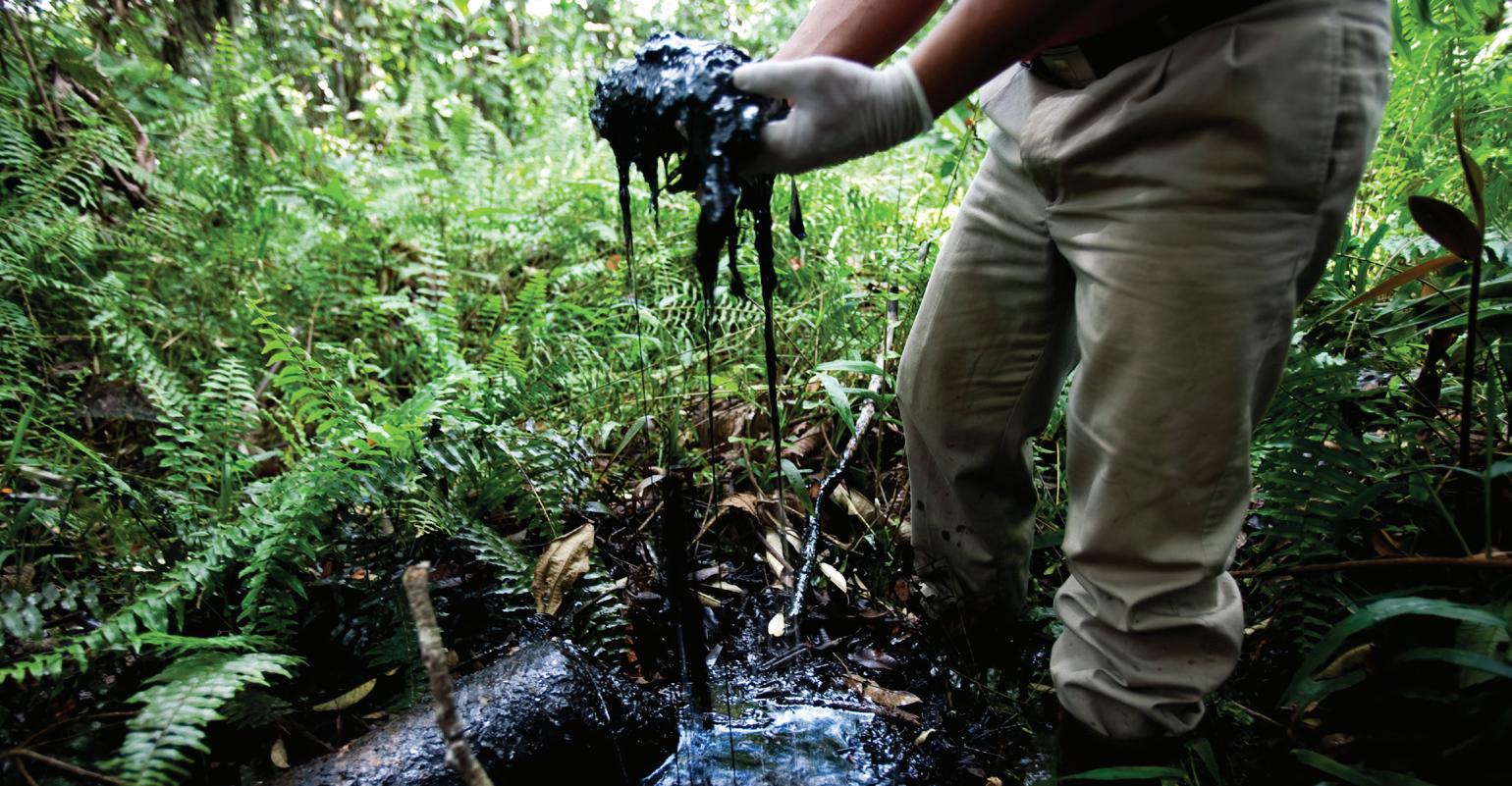
“
The EU dropped proposals to ban 31 pesticides due to the ongoing negotiations
Corporate accountability is at the forefront of TTIP discussions. Te agreement is being negotiated to include the Investor State Dispute Settlement (ISDS), allowing corporations to challenge governments in private international trade courts with the intention to claim compensation for profit losses as a result of any legislation. ISDS certainly appears to be an unpopular prospect and many MEPs are in opposition of its inclusion. European trade commissioner Cecilia Malmström, however, is unlikely to back down and exclude it, claiming that “excluding ISDS from TTIP means missing the best chance to reform the system for a generation”.
Discussions have highlighted the problem of growing corporate power and the lack of accountability. Yet,
Many more companies are a pressing concern for many environmentalists. Te growing palm oil industry has drastically increased the rate of deforestation. Wilmar International, despite making a pledge of sustainability in 2013 of “no deforestation, no exploitation”, there are communities in Nigeria suffering ongoing destruction and pollution of their land. Te Rainforest Resource & Development Centre in Nigeria has brought forward a lawsuit against Wilmar, which is hoped to be heard this month.
Barack Obama’s administration has recently approved plans for Shell to drill in the Alaskan arctic for oil. Tis is a decision that has been widely criticised, especially since the Bureau of Ocean Energy management stated that there is a “75% risk of one or more large spills”, a worrying prediction. Greenpeace’s Save the Arctic
campaign has gained over 6 million signatures in a petition against the drilling proposals. Tey argue that profit is driving both Shell and the US government, and the threat of longterm damage to the arctic environment is being ignored. It seems implausible to be able to trust governments to reduce climate change and protect the environment when they are in agreement and working with companies that go against these principles. Pressure groups and non-governmental organisations appear to be the only way to demonstrate widespread discontent with the actions being taken by corporate giants. Tey have an important role in keeping corporate power in check, monitoring whether they are acting ethically and responsibly. Even in the UK there is still money being pumped into subsidising the fossil fuel industry that is exploiting the environment for money. Even Cardiff University invests in these industries, along with many other universities across the UK. Despite a petition having started when this information came to light in December, the University has defended its policy and the conversation has moved on,
but it’s important that there is constant awareness around this topic.
Te threat is real: the destructive nature of many corporations is severely damaging the planet. It is feared that TTIP negotiations, if successful, could entrench a corporate rule over the EU, whereby profit takes precedence and governments will have little power to hold corporations to account for their actions. Tis would be a backward step for Europe, and halt genuine progression in terms of current environmental issues. We need EU legislation to keep corporations in check, not the opposite. Te inclusion of ISDS in TTIP would move the EU away from a system of corporate accountability to an increase in corporate freedom.
Te environment is in the hands of those who see it as a economic investment with no thought for long-term implications. Not only do we face increasing dominance and dependence on these corporations, but we are placing them in higher value than the planet we live on. Te restricted powers governments across the globe have against corporate actions not only jeopardises the environment, but compromises democracy.
“
Chevron are accused of causing irreversible damage to the environment
”Luke Brett
Despite Spain now being officially out of recession, nearly a quarter of Spanish citizens are unemployed
”
Grassroot movements in Spain have performed successfully in both local and regional elections, marginalising the vote of traditional parties.
With the count almost completed, the governing People’s Party (PP) has won the most votes with 27%, despite losing Madrid for the first time in 20 years. With the economy as the main issue, voters have expressed their concerns over austerity, particularly public spending cuts, and have been angered by reports of political corruption.
Despite Spain now being officially out of recession, nearly a quarter of Spanish citizens are unemployed.
Prime Minister Mariano Rajoy’s administration and the previous Socialist (PSOE) government therefore have been seen as to blame and have been punished at the ballot box.
Six months before national elections, the ruling PP has gained the most votes, beating the Socialist party who received 25% of the vote. But the two traditional parties lacked overall
majorities in most areas, losing a significant number of votes to emerging groups Ciudadanos and Podemos.
Podemos is barely a year old, yet the far left party’s movement now holds power in Barcelona, and have the potential of forming a coalition in the Spanish capital. Te new mayor of Barcelona will be Ada Colau, who made her name by campaigning for people who couldn’t pay their mortgages, as she herself faced eviction by the banks after Spain’s property market declined.
In Poland, Andrzej Duda, the Conservative Presidential candidate defeated the incumbent, Bronislaw Komorowski, with 51.5% of votes in the run-off, while Mr Komorowski polled at 48.5%. While the president only has limited powers, he is still head of the armed forces and can veto new laws.
Te victory will be a signal to Prime Minister Ewa Kopacz, an ally of Mr Komorowski, ahead of parliamentary elections this autumn.
Te Polish election proved a shock as Mr Komorowski seemed a popular
President, presiding over a long period of sustained economic growth while all other EU countries faced recession.
Te result was also surprising as Mr Duda is a relatively unknown candidate, although the European Commission are aware of his Euroscepticism which could influence Poland’s standing in Europe.
Overall, the elections have shown a shift in European opinion, while the Mediterrean has responded to its dire economic state by swinging to the left, Eastern European nations have shifted to the right. Te Conservative party winning in Poland bodes well in parliamentary elections as Croatia looks likely to follow suit.

 Pictured: President Duda’s campaign (Photographer: Czarek Sokolowski)
Pictured: President Duda’s campaign (Photographer: Czarek Sokolowski)
 Rhiannon Tapp
Rhiannon Tapp
Cardiff People’s Assembly is part of a nation-wide network called the People’s Assembly Against Austerity. Te Cardiff movement has built a community of voices which holds meetings, protests and marches alongside events to help the homeless and poor. Te People’s Assembly is fighting against planned cuts and austerity by the Conservative government. Cardiff faces £120million of cuts under the Conservatives over the next three years who plan to cut £12 billion from the welfare budget. Tese cuts will hit the disabled, vulnerable families and young people as well as pensioners. Spokesmen of the Assembly say that ‘anti-austerity views, while increasingly popular, are barely represented in government’ which has created a ‘need for people to mobilise as part of a social justice movement’.
Local cuts to Cardiff will affect many schools, libraries and public services. One of Cardiff People’s As-
TSeen in the same light as the parties’ failure at the general election in failing to gain the support of businesses
sembly’s most recent fights is to save Roath Library, which is set to close following the recent general election.
Adam Johannes of Cardiff People’s Assembly told Gair Rhydd: ‘A few weeks before the election we were told that Roath Library would be saved, on the Monday after the election the council announced it would be closed. It seems pretending to save libraries was a cheap publicity stunt by cheap politicians, who continue to deprive one of our city’s poorest areas of adequate community facilities.’ Libraries are an integral part of self-education and opportunities for social mobility in deprived areas. Figures reflecting on child poverty say that one in three children do not own a book. Roath Library could help to overcome this inequality within our society and was an important pillar of community education. Johannes cited personal experience for the fervour with which he defends public libraries, claiming that despite his
upbringing in a family with a poor background, having access to a public library granted him the opportunity to foster a love of reading and lift himself out of his family’s immediate situation.
Te public library in Roath had the highest figures in Cardiff for use of computers as many people, including - refugees and asylum seekers - searched for jobs. In poor areas, libraries are crucial to protecting vulnerable people within the community, giving them a place where they can find equal footing with others.
As zero-hours contracts, youth unemployment and cuts to benefits continue under this government, Cardiff People’s Assembly has been marching through Cardiff each weekend for the last four weeks. On Saturday the 30th of May, the People’s Assembly went on its ‘People’s March’ and ‘Picnic Against Austerity and the Tories’. One of the main aims of the protest was to create provisions for
Cardiff ’s homeless and growing poor. People were encouraged to ‘bring food to share, donations and health products such as sanitary towels’.
Cardiff People’s Assembly will continue to fight back against austerity measures. In a local capacity they will be sending coaches down to join thousands of others at a national demonstration calling for an end to austerity on Saturday the 20th of June. On this Johannes said: ‘ Te demonstration will be assembling outside of the Bank of England, in the heart of the financial district that caused the economic crash.’
He urges people to join the People’s Assembly saying: ‘We include people from all walks of life who oppose austerity and cuts. Anyone can join. Tere is no need to feel powerless. We hold open meetings to decide what action to take next. Tere is an alternative and it begins with you...’ Email cardiffpeoplesassembly@gmail.com to get involved.
he Cardiff Labour group in Cardiff Council has been tearing itself apart after their leader Phil Bale suffered a vote of no confidence and a leadership challenge all in the space of two months. Te lack of political stability has seemed to undermine the group and the leadership of Mr Bale and his deputy Sue Lent, who now face a worrying time considering the success of the Conservatives and the obvious failure of Labour in last month’s general election.
Te furore was sparked at the beginning of March after one of Mr. Bale’s colleagues Ralph Cook demanded he step down after last minute adjustments to the council’s budget. Mr Cook, a former leader of the Labour group, was supported by the chairman of the Cardiff Business Council, Nigel Roberts, who called Mr. Bale an “embarrassment” after the approved budget cut the contribution to the Cardiff Business Council by £160,000 from the £500,000 given in 2014/15. Tis resulted in questioning over Mr. Bale’s leadership and a vote of no confidence proposed by Conservative councillor
Craig Williams. Tis can be seen in the same light as the party’s failure during the general election to gain the support of businesses and their owners across the country.
Although Mr. Bale survived the vote, this did not stop attacks both on the insufficient leadership he was providing or personal comments on his dress sense. Following the vote, Mr Bale reiterated his belief in the people and businesses of Cardiff. Initially supporters of the Labour leader called the vote of no confidence a smoke screen by Lib Dems and Conservatives to disguise the failings that have emerged from Westminster. However, two months on, Phil Bale initially failed in his bid to be reelected as leader of the Labour group after two rounds of voting resulted in a tie at the annual ballot. After securing victory in the second round of voting a week later, the parties’ group secretary claimed that Mr. Bale had won a “significant” increase in his support.
However, this cannot hide the lack of political unity emanating from Labour which is believed to have come from criticism over Mr. Bale’s
lack of experience and substance. To further highlight the challenges within the group, his predecessor Heather Joyce also faced a leadership challenge in 2013. Mr Bale’s deputy leader, Sue Lent, has claimed that members of the party are undermining the leader’s leadership which has
“
Pretending to save libraries was a cheap publicity stunt by cheap politicians who continue to deprive poor areas
of
adequate community facilities Adam Johannes ”
caused worrying political instability.
However, now that Mr. Bale and his deputy have been re-elected there are now hopes that the group can put the leadership issue behind them and put on a strong front against future Tory cuts from Westminster, as well as the challenges from Plaid Cymru.
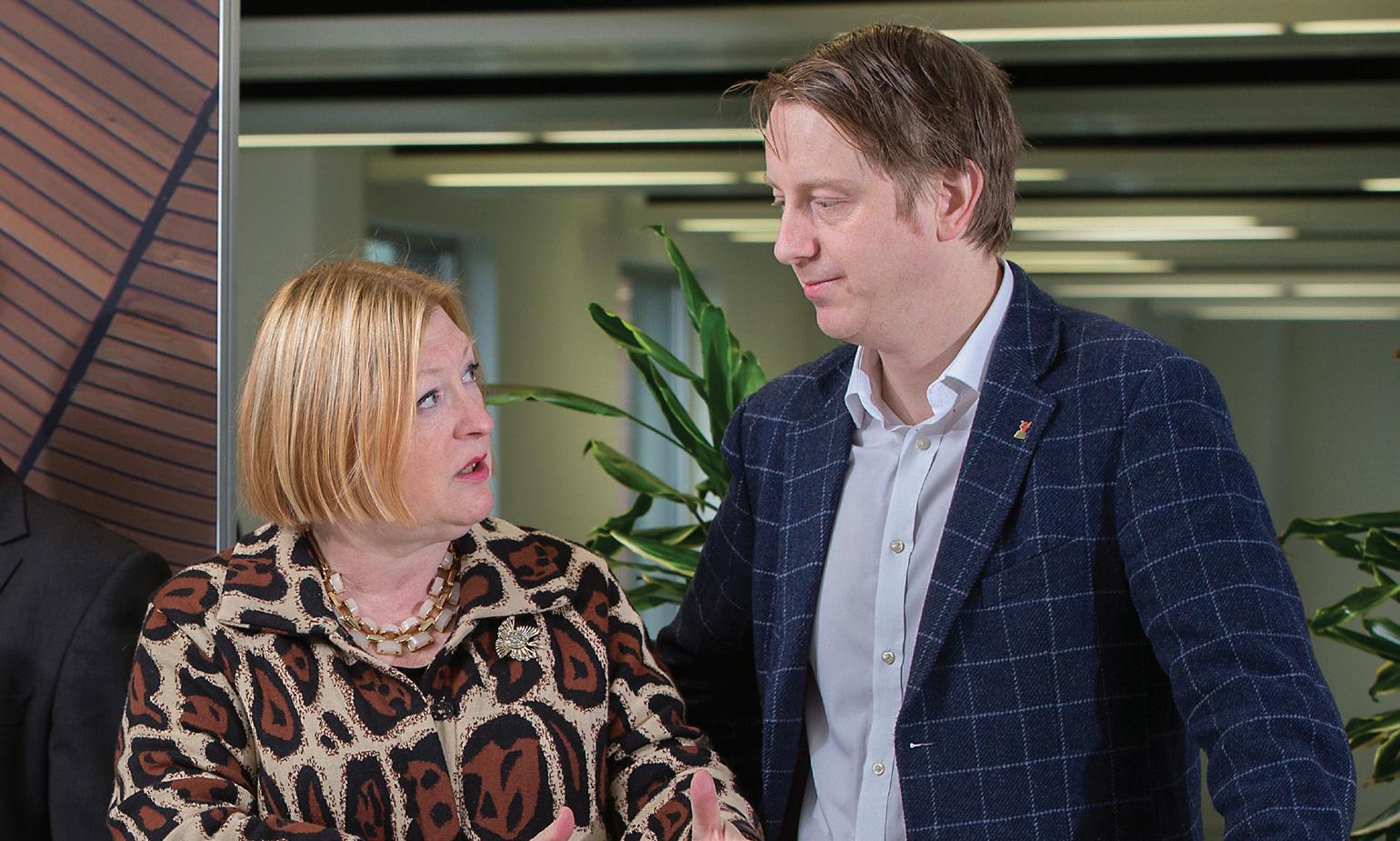 Pictured: Left: Te building reads ‘Cardiff free libraries, Roath branch’
Below: Cardiff Council leader Phil Bale with Welsh Minister for Economy, Science and Transport Edwina Hart
(credit: Phil Bale)
Pictured: Left: Te building reads ‘Cardiff free libraries, Roath branch’
Below: Cardiff Council leader Phil Bale with Welsh Minister for Economy, Science and Transport Edwina Hart
(credit: Phil Bale)
“The pay rise has been criticised by trade unions and all parties
Assembly Members will receive a £10,000 pay rise after next year’s assembly election, but some have said they will not accept it. Backbenchers’ £54,000 pay will increase to £64,000 in May 2016 taking further devolution into account. Te 18.5% pay rise was confirmed on Friday by the body which sets AMs’ pay and allowances.
Te increase, first proposed six months ago, will cost taxpayers about £700,000 more next year. Te pay rise has been criticised by trade unions and all parties. First Minister Carwyn Jones previously said he could not see how Labour could support the increase. His salary will rise to £140,000, while his cabinet members will receive £100,000. But AMs themselves are not too happy with the rise at a time when many public sector workers are seeing their wages increase by two or even one per cent. On Friday, a spokesman for Labour AMs said they had “consistently opposed” the level of the pay rise and they were “disappointed” by the decision.
Plaid Cymru leader Leanne Wood, currently experiencing a new level of popularity following her reception during the General Election, said she could not support “such a large salary
increase” in the current financial climate unless everyone is paid at least the living wage. Plaid AM Lindsay Whittle will also decline the money, while Welsh Liberal Democrat leader Kirsty Williams said her party thought the pay rise was “unacceptable”.
Te Conservatives said it would be “properly considered” by their AMs, when they return to Cardiff Bay the week after next. Te Assembly will cut the amount it contributes to AMs’ pensions by about £200,000 if, as the board expects, the pension changes are approved by the Treasury. Tere are no AMs on the board and its decisions do not need the assembly’s approval. Te Independent Parliamentary Standards Authority is consulting on plans to increase MPs pay by £7,000 - from £67,000 to £74,000. In the Scottish Parliament, MSPs receive a basic annual salary of £59,000 and members of the Northern Ireland Assembly £48,000.
Steffan Bryn, Cardiff University’s Welsh Language Officer and member of Plaid Cymru Ifanc, voiced his opinion on the matter. “I fully acknowledge the need to distribute wealth much more fairly across Wales and the UK. Whilst I respect those politicians who cannot accept the pay increase on
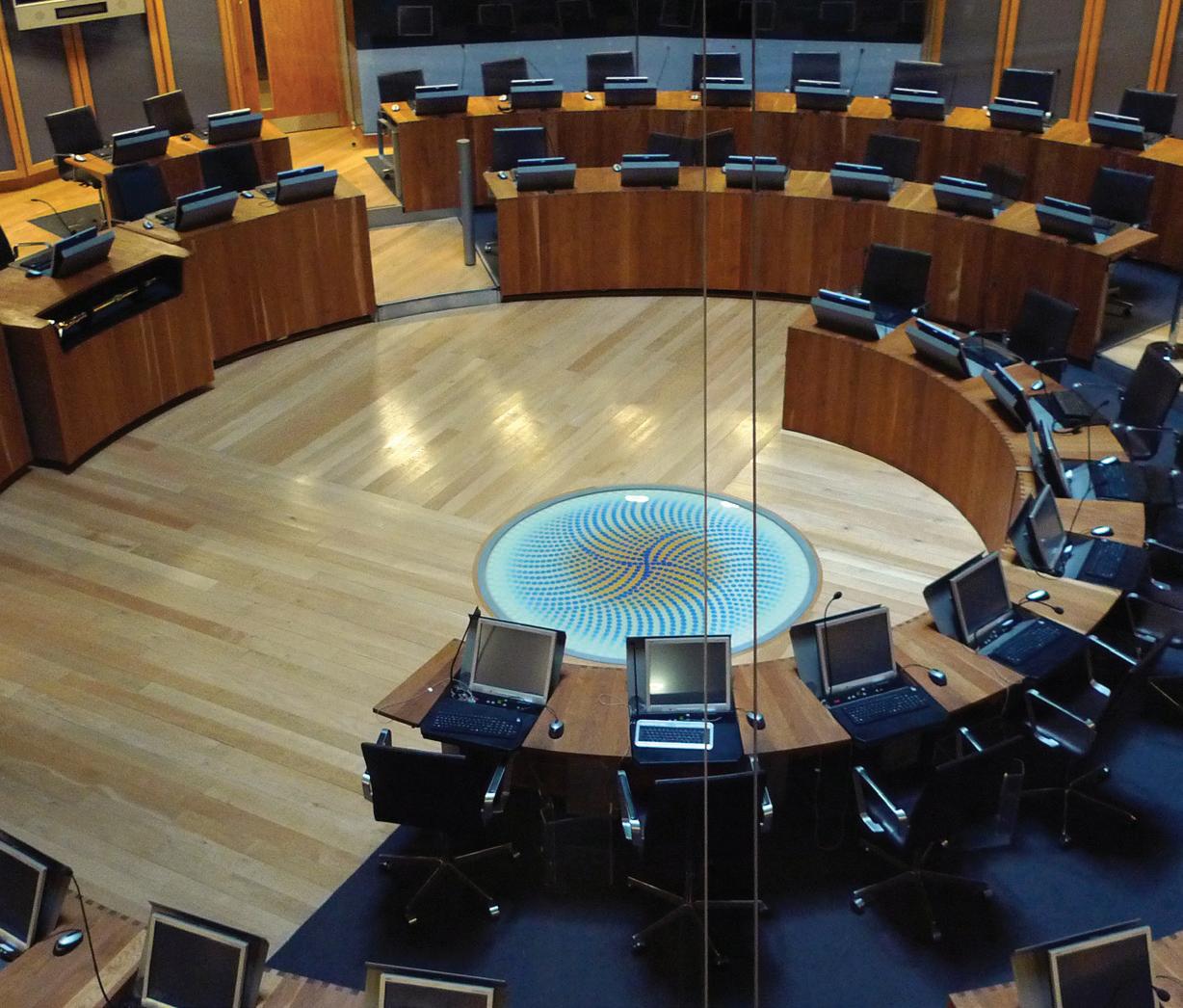
those grounds, the Welsh Assembly is a Parliament like every other. It goes without saying that alongside additional powers for the Welsh Assembly comes extra responsibilities for its members and, naturally, there must be an increase in pay to reflect that. I look forward to seeing Welsh democracy develop and it is essential that our law-makers are equal to their Scottish and English counterparts in terms of the powers at their disposal and in terms of their remuneration for that to happen.
As more powers are devolved to Wales, I would also like to see more Assembly Members, and less Members of Parliament, so we can ensure
that the Welsh Government is properly held to account- leading to better decisions in Wales.”
For large swathes of the general public, they perceive the answer to be that people go into politics because they are self-serving individuals out to feather their own nest. Of course, there’s certainly a few MPs and AMs who fall into this bracket, but as a generalisation this can be overly cynical at times. Some continue to believe that the majority of politicians enter politics out of a genuine desire to make a difference to their community, but to succeed today that needs to be supplemented with a large dose of personal ambition.
“
There are no AMs on the board and its decisions do not need the assembly’s approval
”Jamie McKay
Over half the population of Wales is overweight and close to one in four Welsh adults are now clinically obese. New figures have been released revealing the deteriorating picture, with 26 per cent of children now classed as obese, more than any English region and the English average of 23 per cent.
have backed up this stance, showing obesity reached 28.5 per cent in the most deprived areas, compared to 22.2 per cent in the least deprived areas. Haboubi also launched an attack on the services provided by the NHS Wales, most of which can be traced to a severe lack of funding.
It’s all down to money. There’s hardly any surgery done in Wales because of resources
Dr Nadim Haboubi
Te study also found that over 80 per cent of past testers were still obese, suggesting that children do not simply grow out of it. Doctors have in recent years voiced their concerns that the Welsh Government isn’t taking the issue seriously. Wales is facing an obesity crisis and the NHS struggles under increased demand.
Dr Nadim Haboubi, who runs the only weight management clinic funded by the Welsh NHS, has made repeated warnings concerning these rising levels.
In a BBC interview three years ago Dr Houboubi went so far as to say that the problem was “huge, massive, worse than England, worse than anywhere in the UK and among the worst in the western world”. Dr Haboubi, along with other experts, points to several reasons for this crisis including inequality and high levels of unemployment. Public Health Wales figure
Te Welsh Institute of Metabolic and Obesity Surgery, based at Morriston Hospital in Swansea operates on just 50 people per year despite around 5,000 people meeting the criteria for bariatric surgery (such as gastric banding or gastric bypasses).
In England a patient would need a BMI of 35 with related health problems (such as diabetes) or 40 without to receive bariatric surgery, whereas a Welsh patient would need a BMI of 50 with related problems. Patients in Wales are losing out, and can only be operated on once they are already in poor health.
Haboubi sees a reluctance to adequately tackle the problem by the Welsh Government due to lack of resources. “It’s all down to money. Tere’s hardly any surgery done in Wales because of resources. Yes, it’s costly, but treating it now is going to be a long-term saving of money. If you deal with obesity you deal with prob-
lems like diabetes and coronary heart disease”. Past studies carried out by Swansea University and funded by the Welsh Government found that obesity costs the NHS in Wales roughly £73 million a year.
Local government officials and health experts have expressed their concern at the effect the introduction of spending cuts to councils will have in combatting this crisis, as ensuring these services for children will restrict inflating figures. In response Welsh government spokespeople have insisted that the government remains committed reducing obesity by encouraging healthier diets and physical exercise.
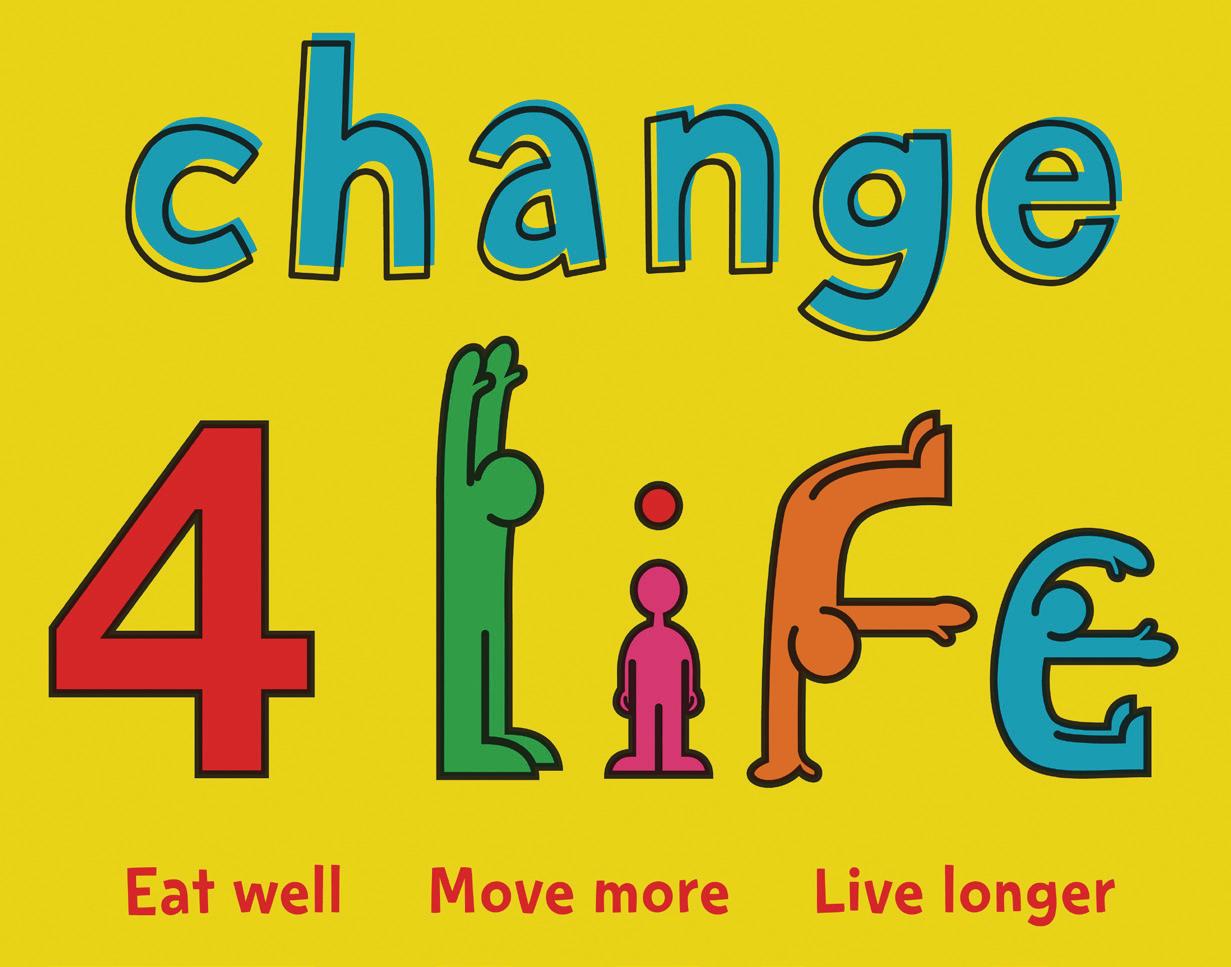
Pictured: Te government has been funding the change4life scheme targeted at families, but there are doubts whether it’s effective enough

For over 60 years, scientists have remained puzzled as to why young blood seems to rejuvenate the bodies of old mice. In 2013, when a Harvard University team reported why, it was thought the riddle had been cracked. But others now disagree, with a controversial study by drug giants Novartis contradicting the evidence. Does young blood really give you life?
If two rats are not adjusted to each other, one will chew the head of the other until it is destroyed
Biochemist Clive McCay first observed this wonder in 1956. When old rats received blood from a younger donor, weight and bone density improved, and the average lifespan increased by four to five months. It can even restore cognitive function and wasting muscles. However, to obtain these results, McCay and colleagues used a controversial experiment. In a description of their work, researchers wrote: “If two rats are not adjusted to each other, one will chew the head of the other until it is destroyed”.
Te gruesome-sounding technique used by McCay is called parabiosis. Tis procedure aims to mimic instances in nature where a blood supply is shared, such as in the case of conjoined twins. By treating one of the rats with drugs, radiation or a special diet, scientists can prove that the second, untreated rat is affected because of the shared circulatory system.
Parabiosis can be uncomfortable to an animal-lover, but is carefully performed under strict regulations to reduce discomfort for the creatures. Two mice are carefully sutured together along their entire length. Not only the skin is joined, but in a delicate operation, so is the blood supply. Te aim is to unite the vessels and arteries, so that the animals can pump each other’s blood.

suggested that a particular protein in the blood decreases as rodents age. When the scientists injected this protein, called GDF11, into the hearts of old mice, the organ appeared younger, pumping blood better around the body. Following studies showed that the GDF11 protein also boosted the growth of blood vessels, stem cells and even neurons in the brain. In their latest publication in Science, authors went on to suggest that the identification of such factors “may constitute the basis for new methods of treating age-related neurodegenerative and neurovascular disease”. It was no surprise this sent biotechnology companies into overdrive – was the possibility of a rejuvenation serum finally on the horizon? Will we one day be able to fight off old age?
Last September, a clinical trial became the first of its kind to capitalise on these findings. At Stanford University, California, neurologist Tony Wyss-Coray and his company began testing whether young blood gave benefits to older people suffering with debilitating Alzheimer’s disease. “I think it’s rejuvenation. We are restarting the ageing clock”, he said.
Others think this technology could potentially be revolutionary. Mark Mattson, of the US National Institute of Aging in Maryland said half-jokingly, “It’s very provocative. It makes you think. Maybe I should bank some blood of my daughter’s son, so if I start to have any cognitive problems, I’ll have some help.”
out last year that [GDF11] helped muscle, it was quite a surprise. Did we miss something?”
Glass and his team at Novartis therefore set out to see if they could reproduce Wagers results, and decipher why their similar protein myostatin exhibited such different effects. Tey began by trying to isolate GDF11 from blood, using identical methods to Wager. However, Glass found that they could not distinguish between the two proteins because they were far too similar. In an effort to combat this, the researchers used a more specific chemical to measure GDF11 levels alone, but in stark comparison to Wagers study, the protein levels actually increased with age, a complete contradiction to what was originally found. Injecting GDF11 directly into a mouse’s muscles, the protein actually seemed to make damage worse and inhibited the ability to repair. All the Novartis team’s data was published in the journal Cell Metabolism earlier this month.
It is also worth noting that Novartis currently have a drug in clinical trials called bimagrumab, which holds promise in treating muscle weakness and wasting. Tis drug works by blocking myostatin, and from what Glass has shown, maybe it blocks GDF11 as well.
Which study is right? As you soon discover with research, it is difficult to tease apart the studies and pinpoint how the differences can be explained. Stem-cell biologist Tomas Rando, of Stanford University, was quick
to praise David Glass and his team.
“ Tey did a very thorough and rigorous job. If this paper was published first, it would not have been surprising.”
In response to Glass’ findings, Amy Wagers still remains confident that her findings are correct. Although the Novartis data “appear to conflict” with her own, she said that “we are very excited to see the Novartis data”. She added, “We remain convinced that at least one form of GDF11 declines in blood with age and that maintaining GDF11 levels in an appropriate physiological range is essential for muscle health. We look forward to addressing the differences in the studies with additional data very soon.”
While the mechanism for apparent rejuvenation remains unclear, scientists and ethicists warn that any treatments should not be given outside government-approved clinical trials. “You often have these lucrative markets emerge on a slender foundation of credible work,” said bioethicist Leigh Turner, an expert in the field of anti-ageing. Unlicensed stem-cell treatments offered by unregulated companies are already booming across the globe, especially in the US, where patients have the “right to try” experimental drugs in many states. While the promise of youth might seem irresistible, until the mechanism of young blood’s action is determined and our safety is certain, we will have to continue the decline into old age gracefully (or as gracefully as possible).
Above: Blood is stored for potential repurposing (Source: Te Sunday Mail, Zimbabwe)
Te prospect of an age-defying treatment has excited scientists for years, who have sought to understand why the act of parabiosis shows such promising results. In 2013, the research community thought they may finally have the answer. Amy Wagers and colleagues at Harvard University
Tere does, however, remain scepticism in the research community, with Wager’s simple explanation for the anti-ageing properties of young blood simply wasn’t up to scratch. Te protein GDF11 is very similar to another protein, myostatin, which prevents cells from differentiating into mature muscle. David Glass, of the Novartis Institute for Biomedical Research, has spent years working on myostatin, which doesn’t restore muscle at all, but actually damages it. “You can imagine that when it came

Pictured: Mice are sutured together in parabiosis experiments to study the effect of the circulatory system (Source: New York University School of Medicine) Got a story idea? Let us know: science@ gairrhydd.com
“
” What we have to get across to people is that pain itself isn’t doing any harm, it’s not something you can cure...
Recent studies show that the go-to pain relief drug may be less useful and more dangerous than previously thought
With over 200 million packets sold over the counter in the UK every single year and GPs writing around 22.5 million prescriptions for the drug annually, it’s clear that paracetamol has become the nation’s go to method of pain relief. Paracetamol was first introduced as an alternative for non-steroidal anti-inflammatory drugs (NSAIDs) such as ibuprofen or aspirin because NSAIDs can cause stomach ulcers and bleeding in the gastrointestinal tract. Paracetamol, on the other hand, was thought to be relatively harmless and effective for a wide variety of ailments.
However, numerous recent reports have provided results that throw the utility and safety of taking paracetamol into question. One of the most damning of these is a study carried out on patients suffering from osteoarthritis or chronic lower back pain. Te results suggest that in the treatment of these two conditions, paracetamol performs no better than a placebo.
Te National Institute for Health and Care Excellence (NICE) still recommend paracetamol for the treatment of these conditions but the authors of the study say their results provide “high quality” evidence that paracetamol is ineffective for these applications. Tey go further by saying that the recommended maximum dose of paracetamol (4g per day) could have safety issues.
One study of female nurses working in the US found that taking 15 paracetamol tablets a week, well below the recommended maximum dose, can increase the risk of heart attack by up to 68 per cent. Tis suggestion that paracetamol may be more dangerous than first thought is corroborated by Professor Michael Doherty, a rheumatologist at Nottingham University, who published a study that suggests paracetamol can cause internal bleeding. He followed the progress of 900 patients who were all over 40 and took paracetamol or ibuprofen for chronic knee pain. When he analysed the results he found that 1 in 5 of those taking paracetamol had lost a unit of blood (about 450ml) from intestinal bleeding over the course of the 13week study.
In response to this study, Dr John Dickson, a retired GP, said: “Paracetamol can actually be a very dangerous drug. It can cause kidney and liver problems, and causes as much gastrointestinal bleeding as NSAIDs.” In 2013, the US Food and Drug Administration (FDA) also moved to acknowledge the dangers of paracetamol, stating that in rare cases it can cause potentially fatal skin condition such as acute generalised exanthematous pustulosis which can cause the top layer of skin to become detached from the body.
It has recently been discovered that paracetamol could pose a threat to
RSome research has shown that dyslexic people have reduced neural activity in areas of the brain linked to reading...
unborn children if taken by pregnant women. Women who took paracetamol regularly during pregnancy were shown to have a 37 per cent higher chance of having a child with hyperkinetic disorder which is a particularly severe form of ADHD. Miriam Cooper of the Cardiff University School of Medicine points out that, “findings from this study should be interpreted cautiously and should not change practice. However, they underline the importance of not taking a drug’s safety during pregnancy for granted.” Paracetamol could also pose a risk to male foetuses in particular as it has been implicated in the growing incidence of babies born with undescended testicles which is thought to be due to a testosterone deficiency. Mouse models were shown to have a 45 per cent reduction in testosterone when exposed to paracetamol.
Tese findings only represent the results of single studies and so are not currently viewed as enough evidence to change prescribing practice for paracetamol. It is highly likely that for the general population the recommended dose of paracetamol is entirely harmless. Te problems with the drug mostly arise from the ease with which an individual can overdose. Te maximum daily dose of 4g is just below the level at which paracetamol can start causing liver and kidney damage so it is important not to take too much. Dr Dickson believes that what’s required
is a culture change: “For most people, it’s a placebo.” He says that “Doctors have traditionally said, ‘No, you shouldn’t have pain, and we’ll give you something to stop it. What we have to get across to people is that pain itself isn’t doing any harm, it’s not something you can cure and sometimes it makes sense not to take anything.”
“It’s not going to be easy because it’s a cultural problem, but my view is that within five years we will no longer be prescribing paracetamol for chronic pain relief.”



esults of a recent study appear to indicate that dyslexia is not related to vision, discrediting many of the most commonly advocated treatments. In the past it has been claimed that dyslexia is linked to numerous sight problems including a difficulty with merging the information from both eyes or susceptibility to glare from white pages which makes text appear to blur or dance on the page.
Tis has led to many attempts to combat dyslexia by altering the way words appear on the page, usually with either tinted glasses or a coloured overlay. Many sufferers of the condition feel these measures are effective with over half of all dyslexic undergraduates having used them at some point during their degree.
However, there is little actual scientific evidence for a link between visual strain and dyslexia. Te new study was conducted on 6,000 UK school children who were both tested for dyslexia and given multiple sight tests. About three percent of those tested turned out to be seriously dyslexic. Tis is in line with national averages but these children did not perform significantly differently in
the sight tests than their non-dyslexic peers, with 16 percent of dyslexic children struggling with some tests compared to 10 percent of non-dyslexic children.
If dyslexia is not related to visual strain, the true root cause remains unknown. Some research has shown that dyslexic people have reduced neural activity in areas of the brain linked to reading such as the inferior frontal gyrus, inferior parietal lobule, and middle and ventral temporal cortex. It is possible that this is due to reduced blood flow to these areas of the brain but this is far from the consensus view of many researchers. Tere are two routes by which humans read written language. Te first is called the lexical route which involves checking known words against a mental database, and the second is the non-lexical route which involves sounding out an unfamiliar word based on known phonemes. It is this second pathway that is inhibited in dyslexic people leading to reading difficulty. Interestingly this effect means that different languages have different levels of difficulty for dyslexic people. Te Spanish language is very dependent on phonological rules meaning
that Spanish children are generally more adept at sounding out words than their English counterparts, making rates of dyslexia in Spain relatively low.
Tis approach to understanding dyslexia could hold the key to its treatment as many experts now believe that the best way to combat dyslexia may be the same way that everyone learns to read: with phonemes






and repetition. It may just be that dyslexic people require a lot more of this tuition than non-dyslexic people.
Te message here isn’t that colour overlays have no potential to combat dyslexia as many people find them helpful but it is important that treatments for this condition be grounded in solid evidence and not just accepted uncritically if effective new treatment strategies are to be discovered.








(Source:
Hello everyone!
I hope you have all had a fantastic week and the exam season is going well for you. I can’t believe that this is the last Park Life for this academic year. Where has the year gone? In this week’s Park Life we’re going to be reflecting on the highlights of Heath Park activity that has taken place over the past year. It’s been a fantastic year, and it has been a pleasure to work with you all.
I want to take this opportunity to thank Vidya and Tim who have edited this section of the paper this year. I know how demanding healthcare courses are and I really appreciate the fact that both of you have taken the time away from your studies and placement to edit. Park Life couldn’t have happened without your hard work so thank you again.
I have made massive advancements with room bookings after 7pm on the Heath Campus
In terms of recent news from me, I have made massive advancements with room bookings after 7pm on the Heath campus. You may remember me talking about this issue a while ago in Park Life. With the help of university estates, library services and security, we are on our way to securing later room bookings on the Heath Campus in the Cochrane library. So, it looks like from September, rooms will be bookable to sports clubs and societies up until 9pm, which will work really well for
those of you who want later committee meetings. This change will also mean that the Languages for All programme will be able to operate from the campus later in the evenings, meaning that sessions will more accessible to you, especially if you are coming straight from placement.
Last week I delivered a presentation to the College of Biomedical and Life Sciences that outlined how I was progressing with the Peer Assisted Learning App. The app aims to house video tutorials, quizzes and databases, containing both clinical and academic information. The app aims to deliver this information to students in a stimulating, fun and student friendly way. In regards to where we are with the app so far, we have filmed radiographic positioning, communication skills and caring phrases in the Welsh language which aims to help students learn basic Welsh which they can then use on placement. We have also been working on an anatomy, drugs and physiotherapy massage section too! Things are ticking along well with the project, and I am aiming for a launch date in September 2015. Finally, just a big thank you to all of you who have supported Park Life this year! Make sure you continue to read next year and follow Heath Park news and see what my successor, Katey Began, is getting up to.
Medics’

to a pop-up chaplaincy, it’s been another eventful year at the Heath “
As we present the last Park Life, we thought it’d be a nice idea to summarise the past academic year and events that have taken place at the Heath.
Claire Blakeway has done a fantastic job as VP Heath Park, and has most definitely put the Heath on the map. Lots of new events, stalls and schemes have been put in place at
the Heath, which shows promise of her abilities in making Cardiff Students’ Union bigger and better as President in the forthcoming academic year.
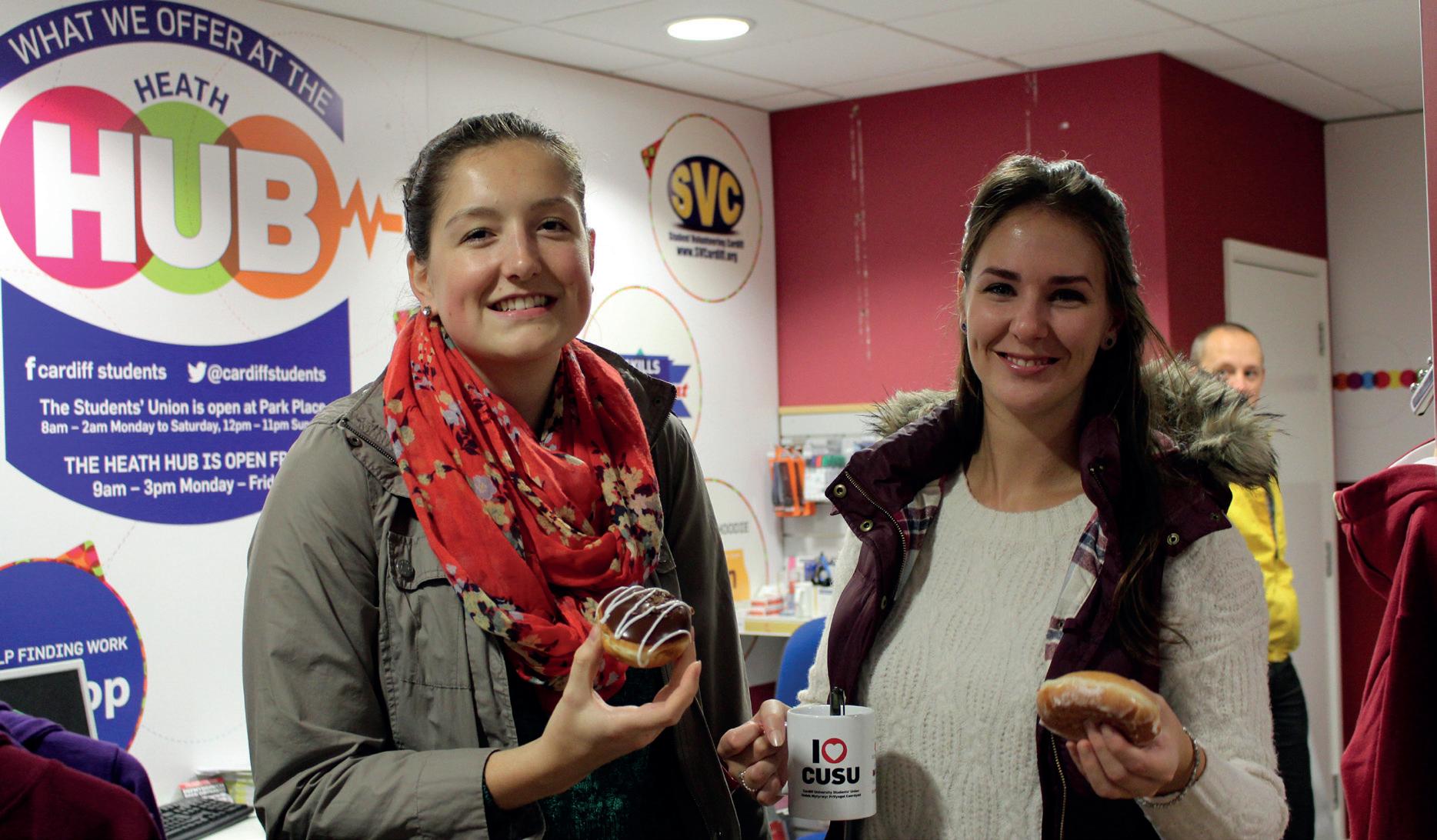
At the start of the 2014-15 academic year the Heath Park Freshers’ Fayre came in with a bang. It proved a massive success with over fifty stalls present and around 350 students signing up to a club, society or student-led service on the day! As in previous years, the Fayre was held in the C.M.C Sports and Social Club on Wednesday 24th September 2014. It was primarily targeted at healthcare students, but was open to all.
Te beauty of most of the clubs and societies present at the Fayre is that they cater to healthcare students. Most do this by structuring their activities to fit around the typical healthcare students’ timetable and placement demands.
As well as the societies and clubs, private companies, the chaplaincy and campaign officers were there. It was great to see so much involvement and I, for one, as Students’ With Disabilities Officer thoroughly enjoyed myself.
Te popularity of this event was evident by the long queues and large turnout means that come September, there will be more tills and hopefully, a bigger venue to accommodate everyone!

“The
beauty of most of the clubs and societies present at the Fayre is that they cater to healthcare students
”
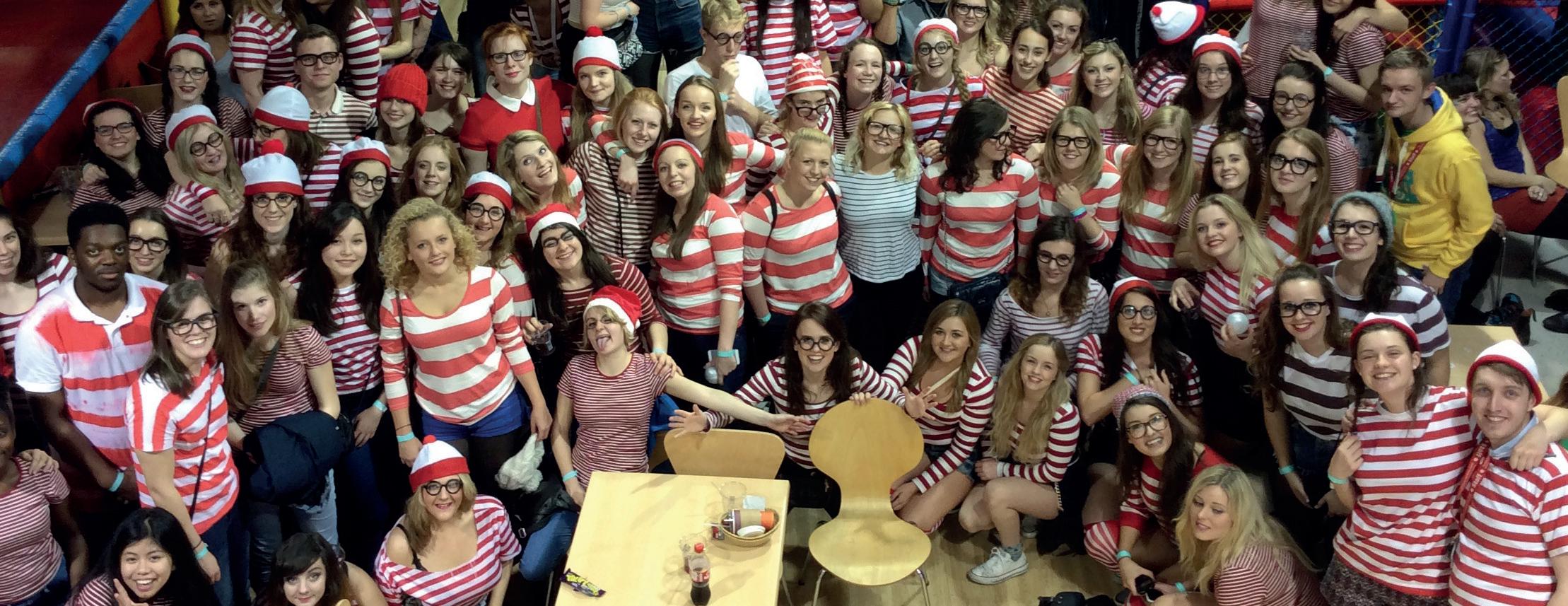
Shortly after the Heath Fayre, ‘Give it a Go’ launched successfully at the Heath Park Campus. ‘Give it a Go’ understood that the experiences of healthcare students are significantly different from those studying on the main campus in Cathays.
As such, events were created to meet the needs of our students at the Heath. The most successful trip run by ‘Give it a Go’ for the Heath was the ‘Where’s Wally?’ trip to Playzone. This trip saw 100 enthusiastic healthcare students dressed up as Wally jump, slide and climb around in what is a kid’s softplay centre with cheeky drinks for adults in the night - see if you can spot any ‘Wallies’ you know!
In November, Cardiff Medics travelled over to Bristol University to compete in a fierce day of sporting competition for the first ever Medics Varsity! Medics teams from both university’s competed in sports including netball, squash, football, hockey (ladies’ and men’s) and rugby.
It was a fantastic day enjoyed by all, and was topped by Cardiff’s incredible results which saw them sweep the day to win all of their games. The Students’ Union were incredibly grateful for all the support that the Medical School gave to all the teams competing in the Var-
sity. Prof Nick Topley presented the Varsity shield to the winning Cardiff teams.
December saw the finale of the Wheeler Sisters’ ‘14 Challenges for 2014’. They started their challenges during Gemma Wheeler’s term as VP Heath Park before Claire’s term began and finished in December.
The pair decided to support a relatively unknown charity, Scotty’s Little Soldiers, set up in 2010 by an army widow. It aims to make life a little easier for the children who have lost a parent in the army by providing gifts, treats and short breaks away.
The sisters said it was an ‘absolutely fantastic cause’ and one close to their hearts, especially after having a Father, Grandfather, uncles and friends all serving in the military. Fourteen challenges were completed which required sacrifice and planning.
Obviously, their social lives took a bit of a knocking but they were glad to say they learnt a lot. Their final challenge was a 24-hour cyclathon, which Gemma did shortly after undergoing a minor operation to her wrist.
The Wheeler Sisters’ grand total was a staggering £3,300. Gemma and Sophie Wheeler, as students of the College of Life and Biomedical
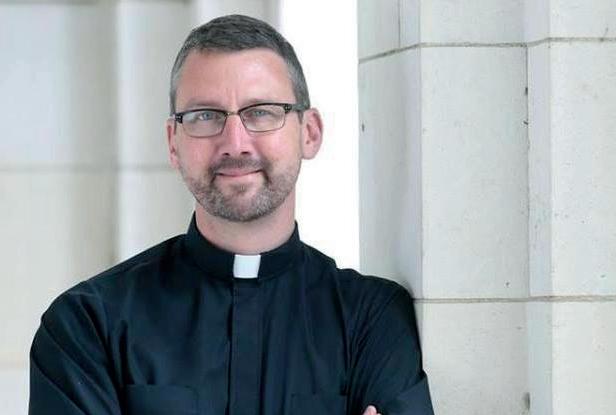

Sciences, we couldn’t be prouder of you!
More recently the Anglican Chaplain, David Sheen introduced the concept of a ‘Pop-Up Chaplaincy’ at the Heath Campus. For the last few Fridays of term, Father David Sheen has been available to talk to at the IV Lounge. He offers confidential support and advice, as well as a lending ear and informal chats.
Father David Sheen along with other chaplains of different faiths,
will have a stall at this year’s Freshers’ Fayre. Do pop along and speak to them, should you wish to!
Finally, the various Cardiff Awards’ Ceremony saw many of our lovely students being nominated and shortlisted for awards. Jumana Nabulsi took away two awards at the ESLAs, which left us smiling from ear to ear.
That is the round up of the major events that have taken place at the Heath this year. Until next time!
Pictured: Clockwise from top: Te ‘Where’s Wally?’ trip to Playzone for ‘Give it a Go’; Men’s hockey at November’s Medics’ Varsity competition; Jumana Nablusi accepts an award at the ESLAs; Father David Sheen of the Anglican chaplaincy
For the last few Fridays of term, Father David Sheen has been available to talk at the IV Lounge
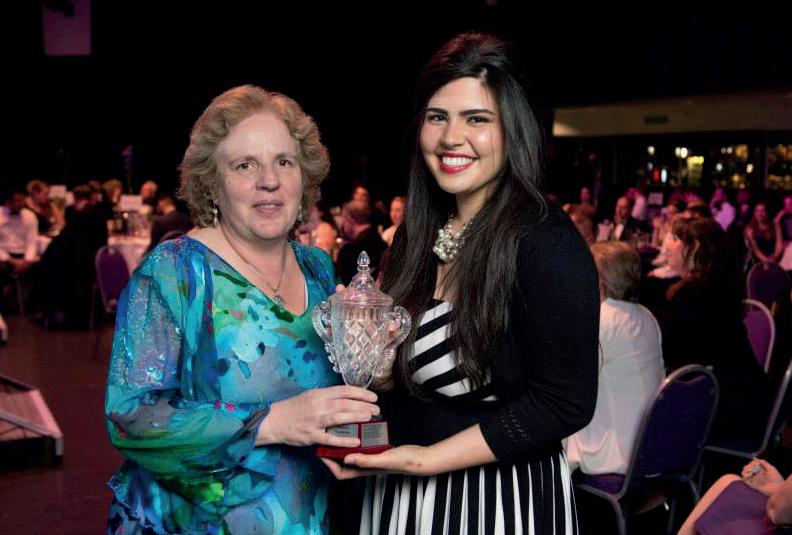

It’s here, Cardiff University Students’ Union’s end of exam extravaganza. From the team who brought you DTBD Xmas and DTBD Wonderland.
Big Summer Blowout is a Summer themed party. You can expect a huge BBQ with your favourite street food, carnival games and YOLO/FLUX DJ’s bringing you your favourite summer club anthems. We’ll also be hosting carnival style games such as Hook a Duck, Ring Toss, and a Coconut Shy. Every time you buy something in our food court in Y Plas, or the Taf, you’ll get a free scratchcard featuring all kinds of prizes from free drinks to tickets to the event. (Ends 11th June 2015).


Continued from back page
Cup competitions may well be the Blues’ best accolade this season, and that encapsulates the substandard year


Day clash at Arms Park 17-23, then sneaking the corresponding fi xture at Rodney Parade 11-9 courtesy of Corey Allen’s try and the boot of Gareth Anscombe (both from the tee and a drop-goal). Alas, the Blues were to win just three more league games, as things went from bad to worse on and off the pitch.
Hammett’s resignation in February caused a shock to the players to the extent that they were easily beaten by Benetton Trevisio that evening. Tis was a high point in the history of the Northern Italian club, and equally a low point for the prestigious Cardiff Blues.
Home wins against Edinburgh and a last-gasp result over Connaught did little to mask the Blues’ problems, and before the season ended there were yet more losses – notably away to the Dragons, and over the road at the Millennium Stadium to the Ospreys on Judgement Day III.
Te final standings show that Blues mustered a measly seven wins from 22 matches, with a solitary draw and 14 defeats. What makes this record seem even worse is the lack of a real scalp, and poor showings against the other Welsh regions. Te Blues did not make it a routine 100 per cent record against the Italian sides, losing away to Treviso, and only notched one win apiece against the Scottish and Irish teams. Add these results to 11-9 win over the Dragons, and the only convincing result the Blues had against a compatriot side was a 21-9 win over Scarlets.
Cup competitions may well be the Blues’ best accolade this season, and that encapsulates the sub-standard year. Whilst the Blues fared better in the European Challenge Cup (the second tier European competition) and the LV Cup, a quarter final loss to the Newport Gwent Dragons and
a pool stage exit, despite three out of four wins, can hardly be deemed a great success. Clearly there is a long summer of preparation ahead.
To completely write off the 2014/15 Cardiff Blues season is to do a disservice to players such as Gareth Anscombe, Rhys Patchell and Kristian Dacey. Anscombe and Dacey’s consistent high level performances have earned recognition from Warren Gatland, as they were named in his 2015 RBS Six Nations training squad. Anscombe has proven effective both at fly-half and full-back and in him and Patchell, the Blues have the number ten jersey covered for the foreseeable future.
It is elsewhere in the squad that Cardiff need to improve, and this could also form part of an explanation for the disappointing season. Te Swansea/Neath Ospreys finished in third position, and were the highest ranked Welsh region.
Captained by the talismanic Alun Wyn Jones, the Ospreys also boast this season’s league top try scorer in Rhys Webb, joint highest point scorer over the campaign Dan Biggar, and Dan Lydiate, Justin Tipuric and Scott Baldwin amongst their ranks.
A direct comparison of the Blues and Ospreys squads may be hard reading for diehard Blues fans. Te likes of Corey Allen and Alex Cuthbert (when in-form) and Sam Warburton would be the only Cardiff players to walk into starting Ospreys starting XV.
Terefore, recruitment is paramount. Adam Jones is moving to Harlequins and, with Matthew Rees being released, only Gethin Jenkins and Scott Andrews remain as internationally experienced front rowers. With Jenkins turning 35 in November, it is questionable how much game time the Blues will get
out of him in the long term. An addition to the front row would be very beneficial to the Blues.
British and Irish lion Alex Cuthbert refused to sign a dual contract with the WRU and Cardiff Blues in January of this year, leading many to believe that he saw his future lying elsewhere, either in France’s Top 14 or the English Premiership.
Retaining Cuthbert’s services have been described as “a key aim” by the Blues bigwigs and despite his inconsistency, a player of his calibre must be retained at all costs. Blues have already announced the return of winger Tom James from Exeter Chiefs who will boost the backline.
However, the man who is the Blues’ all-time top try scorer in the Pro 12 has aged by two years since he last pulled on the famous blue and black colours, and James has struggled to break into Exeter’s first team. James cannot be seen as a replacement for Cuthbert, and must be viewed as a squad rotation player
to help cope with the vigorous long season.
So where do the Blues go from here? To quote the famous 1980s hit, the only way is up for Cardiff Blues. With investment in the first team and hopefully an encouraging appointment at Head Coach, the club should be aiming to steadily improve.
Retaining play-makers like Cuthbert and investing money into the front row is vital, however.
Te Blues should also seek to be more clinical in the so-called “easy games” and will be hoping that next season they gain four comfortable wins from Italian opponents. Better results versus the Welsh regions are important too, not only for pride but also league position.
At the very least, the new Head Coach should be aiming to stop the rot, and finish above Newport.
Llanelli Scarlets and the Ospreys may be a step too far at the moment, but Wales’ capital should not again be home to the worst Welsh province.
Despite the fierce rivalry between the two biggest football clubs in South Wales, Cardiff City fans should set aside their bias and acknowledge how well run Swansea City is as a club. Whether that be at boardroom level, backroom staff or the playing squad, the Swans are the template for sustained success in the top flight of English football, and Cardiff should be advised to set aside any underlying bias and absorb all the information they can from their rivals.
Swansea chairman Huw Jenkins, who grew up in the city, should garner extensive amounts of praise for his part in establishing his club as a force in the Premier League. His loyalty to the club is unwavering and
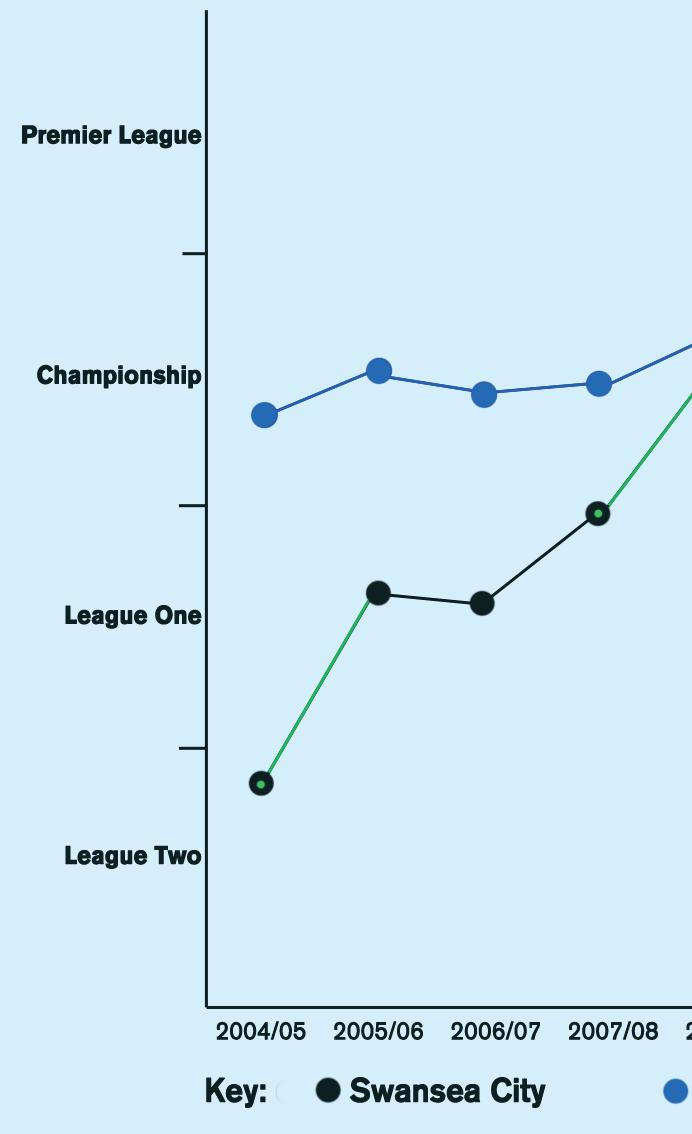 Dan Heard
Dan Heard
Both Davies and Collins featured in Wales’ last qualifier, an outstanding 3-0 victory in Israel
“ ”
he has gained himself a reputation as a shrewd financial manager, turning profits each season without risking the club’s on-field status, which has been pinpointed in the Swans debut Premiership season where they saw a record profit of £14.6m and finished a respectable 9th in the table.
At the Cardiff City Stadium, Vincent Tan, Cardiff City’s owner, has conveyed his lack of expertise at the day-to-day running of a football club. Other than the controversy surrounding the change of the identity of Cardiff City, Tan has also shown an uneven input of finance, as he pumped in money since taking over in 2010, but has scaled back this financial help this past season despite the club trying (and failing) to push


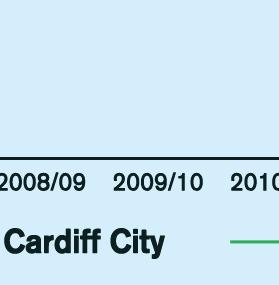





back up to the Premier League.
Tan’s loyalty to the club has also been under scrutiny in recent weeks, as news of his taking over of his fifth football club, Belgian side K.V. Kortijk, has been confirmed. City fans are increasingly desperate for chairman in the same vein of Jenkins, one who puts his heart and soul into his club rather than one that looks at them as an investment.
Swansea have also been able to be as steady on the field as they have off it, despite various changes of manager. Starting from the hiring of former player Roberto Martinez in 2007, the Swans have gone through four different managers. Teir current boss is another former Swansea player - Garry Monk. Although there has been a lot of change at the helm, each manager has kept the style that Martinez established at the club, and Swansea are now well known for their approach of dominating possession and utilising free-flowing passing football.
Cardiff, however, have endured a different time when transitioning between managers. Dave Jones and Malky Mackay were well known for using rather negative tactics that didn’t really ignite the passions of City fans, while Ole Gunnar Solskjær seemed to be inept at adapting and countering opposing managers’ tactics. Current manager Russell Slade has put all his eggs in one basket with ineffective long ball play, even when the large strikers needed to hold up the ball in this style were not available to him at the tail-end of this campaign. While changing team tactics is a natural part of the transition between managers, former bosses and Slade alike have neglected to the squad’s strengths, and instead seem intent on forcing their philosophies down the players’
throats no matter the circumstance.
Along with their tactical approach to the game, Swansea has displayed an effectiveness in the transfer market that Cardiff has lacked. Swansea have a knack for capturing already established Premier League and other foreign quality players at bargain prices, with goalkeeper Łukasz Fabiański and Gylfi Sigurdsson proving to be key components in their fantastic eighthplaced finish this year.
A side-by-side comparison that could be made with Cardiff are the signings of Wilfried Bony and Andreas Cornelius, with both signings arrived at their respective clubs in 2013. Young striker Cornelius bombed for the Bluebirds, scoring no goals and only playing eight games despite an alleged record £8million transfer fee after a solid season at F.C. Copenhagen, and was then sold back to his first club after his only season at Cardiff Swansea obviously got the better deal, as Bony, experienced in the more competitive Dutch league with Vitesse, signed for £12 million. Bony’s career took a dramatically different direction to that of Cornelius, as he scored 25 goals in his 54 games spanning into 2015, easily settling into life at Swansea and establishing himself as one of the top marksmen in the league, eventually moving onto Manchester City for an initial £25 million fee. Tis is only one example of Cardiff ’s troublesome transfer history, with other players signed from abroad proving as ineffective at the club as Cornelius, such as Magnus Wolff Eikrem and Guido Burgstaller.
If Cardiff want to get back into the Premier League, it certainly wouldn’t hurt to look up to their closest rivals and see where they can improve.
Chris Coleman has named his 23-man squad for Wales’ upcoming Euro 2016 qualifier against Belgium next month, with injuries to several key players forcing the national team manager to re-think his options. Both Ben Davies and James Collins miss out due to longstanding injuries, while there is a recall for Andy King, following suspension, with youngsters Adam Mathews and Paul Dummett also returning after missing the previous qualifiers.
Tottenham full-back Davies dislocated a shoulder against Southampton last month and is ruled out for several months, while West Ham centre-back Collins picked up a calf strain. Both Davies and Collins featured in Wales’ last qualifier, an outstanding 3-0 victory in Israel at the end of March, but have failed to recover in time for the enthralling Group B clash with leaders Belgium at the Cardiff City Stadium on June 12th. Leicester midfielder King was sent off against Cyprus, but was pivotal to his
side’s Premier League survival, while Celtic’s Mathews and Newcastle’s Dummett are now fit enough to be included.
Midfielders Jonathan Williams (groin) and Emyr Huws (knee), as well as forward George Williams (ankle) are also unavailable. Crystal Palace’s Williams, dubbed ‘Joniesta’ by the Welsh faithful, faces a spell on the sidelines with a groin strain, while Wigan’s Huws also fails to make the squad with his long-standing knee injury.
Fulham’s own Williams, who was very impressive in the games against Bosnia and Cyprus in November, also misses out due to an ankle problem. Elsewhere, Hull City’s James Chester returns after missing the Israel game following surgery on a dislocated shoulder. Te 25-year-old was another who shone in the opening games of the campaign for Wales, and fills the void left by the vastly experienced Collins, who deputised against Israel and who he actually usurped in the first place. Te uncapped trio of goalkeepers
Owain Fon Williams and Danny Ward, and striker Tom Lawrence, are also part of Coleman’s plans. Fon Williams, who endured a nightmare season following relegation from the Football League with Tranmere, has been released by the Wirral-based club, and is attracting attention from abroad. Fellow keeper Ward, who spent a month on-loan at Morecambe in March, made the bench for parent club Liverpool on a number of occasions last season. Leicester’s Lawrence, meanwhile, will be looking to emulate the likes of Williams and Huws in earning his first cap.
Real Madrid’s Gareth Bale, currently battling the fans and the media in Spain, and Arsenal’s midfield dynamo Aaron Ramsey are thankfully fit and included, as is Swansea captain and Welsh skipper, Ashley Williams. While Bale continues to attempt to win over the fans he won the Champions League in front of in 2013, Ramsey has been linked with a £50 million move to Real’s great rival Barcelona. Both
Cardiff City fans should set aside their bias and acknowledge how well run Swansea City is as a club
“ ”
Pictured: Left, A sideby-side comparison of Cardiff City and Swansea City’s performance over the last ten years. Swansea have ascended from League Two to regular Premier League football, while Cardiff have stagnated in the Championship, with a solitary appearance in the top flight
scored in Wales’s demolition of Israel to leave them top of Group B going into this crucial fixture, one which could see Wales all but secure their place in France next year with a win.
Goalkeepers: Hennessey (Crystal Palace), Fon Williams (Free agent), Ward (Liverpool)
Defenders: A. Williams (Swansea), Chester (Hull), Gunter (Reading), Taylor (Swansea), Dummett (Newcastle), Matthews (Celtic), Richards (Swansea), Henley (Blackburn)
Midfielders: Allen (Liverpool), Ledley (Crystal Palace), Ramsey (Arsenal), King (Leicester), Vaughan (Nottingham Forest), MacDonald (Bournemouth), Cotterill (Birmingham)
Forwards: Robson-Kanu (Reading), Lawrence (Leicester), Bale (Real Madrid), Church (Free agent), Vokes (Burnley)
Te manager of ice hockey’s Cardiff Devils speaks exclusively to Gair Rhydd about their cup-winning seasonJames Lloyd
We have probably had more success than we thought we would have, we wanted to win something but everyone wants to win Todd Kelman
After winning the Challenge Cup in his debut season, Cardiff Devils’ manager, Todd Kelman, reflects on a busy year at the helm of Cardiff ’s ice hockey team. Kelman arrived in Cardiff after a lengthy spell at the Belfast Giants where he played as well as coached. Te Giants retired his number 44 jersey and he was a huge fan favourite in the Northern Ireland capital. Kelman said: “My whole life was there, I played there and my jersey was retired there so they were the only team I ever really worked for”. He added: “I absolutely loved it there, they never thought I’d leave and I didn’t really think I was going to leave either, but then the opportunity came here in Cardiff, a chance to join up with some friends from back home who believe in what we are doing and here we are almost a year later and I am very happy with my decision”.
Last summer, Canadian Kelman, 40, swapped capital cities in search of a new challenge and soon impressed the Devils fans, delivering their first piece of silverware in eight years. He said: “We have probably had more success than we thought we would have, we wanted to win something but everyone wants to win”. He admitted: “We weren’t really surprised that we won the Challenge Cup, but it wasn’t expected for sure”. Since his arrival Kelman wanted to transform the running of the club, and said: “It was my first year in Cardiff and coming in we wanted to change the way everything operated, the way we ran the team, we really changed the whole culture in a short period of time”. Kelman claimed that whilst most
clubs have five months to organise a team, the Devils had less than four weeks to assemble a competitive squad. “We put together a team in four weeks whilst most teams have five months to do that, I had a coach in Andrew Lord who did such a good job in recruiting and that’s why we have been successful”. Kelman is thankful for the efforts of Andrew Lord, who scored in the 2-1 Challenge Cup Final win, he said: “He was the best coach in the league last year and he also had to play, if tomorrow he broke his leg and could never play again he’d still be a guy I want to coach this team”.
Te Devils have recently announced the signings of Leigh Salters and Guillaume Doucet, from Braehead and Nottingham, respectively. Cardiff have also retained the services of Joey Martin, who topped the league for assists last year. “Salters is the complete package, he’s one of the biggest, he has a scoring touch like no other, he was fourth in the league in goal scoring, he can fight and he’s intimidating”. Kelman also said: “Joey led the league in assists last year and he was so consistent, he was either scoring or setting up, we really wanted to get Joey Martin back”.
Many British ice hockey fans would relish the chance to see an NHL game played in the UK. With the NFL securing three more fixtures at Wembley this season, Kelman, who was the 144th overall pick by the St Louis Blues in the 1994 NHL draft, dismissed the possibility of the hockey league crossing the Atlantic for a game.
“Te NHL plays so many games and the only place that could really host a game would be the O2 and I just can’t see it

being big like basketball or football. He added: “Te NFL makes sense as they play one game a week, the O2 wouldn’t work as it’s not ideal for hockey, there’s a big hole in the middle of the floor for concerts and they would have to fill it with artificial ice and cover it with real ice, so it wouldn’t uphold for the sake of a couple of games”.
Looking back at the past year, Kelman admitted it’s been a “Cinderella season” for the Devils. He said: “Te fans are so happy to have a team to cheer on and then to win something was almost like an added bonus, and now we are expected to win all the time which is a good thing”. Kelman praised the “incredible” Devils fans by adding: “Tey deserve a winning team, you see a lot of fan bases that expect a team to win and Cardiff are one of those fan bases who love their team regardless. Seeing the way they are and
CThe Masters has given me a massive boost and now I know I can beat the best girls in the world
Natalie Powell
ardiff University student Natalie Powell added to her gold medal at last year’s Commonwealth Games with a silver at the World Judo Masters, which were held in Morocco. Powell successfully traversed her opening three rounds before being defeated in the final of the competition in the North African country’s capital of Rabat.
In the first round she successfully overcame Sarah Myriam Mazouz, a silver medallist of the African Championships, in the -78kg category of the tournament.
Next in the Welsh girl’s path was French competitor Audrey Tcheumeo in the quarter-final, but she was no match for Powell, who studies biomedical sciences at Cardiff Her semi-final opponent was Marhinde Verkerk of the Netherlands, who has both a silver and gold medal to her name from previous World
Judo Championships, picking up her first-place finish in Rotterdam 2009, then finishing second in Rio de Janeiro 2013. Powell proceeded to dominate her well-decorated opponent however, progressing to the final where she came up against American Kayla Harrison, who won gold at London 2012.
Harrison was one step too far for Powell, who couldn’t prevent her vastly experienced opposite number from coming out on top in what was only the duo’s second ever coming together.
Despite her eventual final defeat, Powell has now become the first British woman to be a finalist in a World Judo Masters championship.
With the win in Rabat, Powell added to her 2016 Olympic Games qualifying points and is now looking ahead to next month’s first ever European Games in Baku, Azerbaijan,
as she looks to ensure her place in the Great British camp going to compete at the 2016 Games, being held in Rio de Janeiro, Brazil.
On her silver medal, Powell expressed her joy at her recordbreaking showing: “Obviously the Masters has given me a massive boost and now I know I can beat the best girls in the world.”
Looking ahead to the upcoming European Games in Azerbaijan, Powell said: “Getting the chance to now go to Baku and compete in the first ever European Games is a completely new experience and one I’m really looking forward to.
“Te European Games is the last event in the first year of qualifying for Rio so will play a big role in getting to the Olympic Games.”
Te inaugural European Games take place from June 12th to June 28th, over a number of disciplines.
the way they support is incredible so hopefully there is more to come and more to celebrate”.
With over four months until the start of the new season, the Devils look to have a busy offseason period, with recruitment and player analysis taking place. “For us, you never feel like the offseason is long enough, we are trying to sign players but the weeks seem to fly by”. Kelman also said: “Tere’s really no offseason for us, it goes from playing games to building a team, so that’s what our focus is on now”.
It promises to be a busy summer for the Devils as Kelman and Lord look to create a competitive team and bring more success to the Welsh capital. Te Elite league season gets underway in September, with the fixtures yet to be announced, a priority for the Devils will surely be to defend their Challenge Cup trophy.

tweet us @gairrhyddsport
email us sport@gairrhydd.com or visit us online at gairrhydd.com/sport

A season that started with optimism under Mark Hammett fizzles out with the Blues looking for a new coach
Cardiff Blues’ underwhelming tenth place finish in the Guinness Pro 12 marks the first time that Arms Park has been the host to the lowest ranked Welsh region. Only Italian sides Benetton Treviso and Zebre had worse records over 22 games than the Blues, and serious soul-searching and personnel change is required in the post-season.
New Zealander Head Coach Mark Hammett left the club in February this year citing personal reasons, and caretakers Dale McIntosh and Paul John took the reins on an interim basis. Over 30 applicants have put themselves forward and it is now time for the board to decide on the best person to take the region forward. Te Blues started the campaign in
early September with a routine win away at Zebre. However they would not experience that winning feeling in the league again until 28th November with a laboured 36-25 success over the other Italian side Benetton Treviso. Whilst the Blues did beat Grenoble and Rovigo in the European Challenge cup and edged Newcastle Falcons and Llanelli Scarlets in the LV Cup over
this period, they remained winless in the Pro 12. Tis late November win at Arms Park proved to be a mini-catalyst for the Blues with another win over the Scarlets (this time in the league) and a victory and loss against London Irish in the Challenge Cup. Over the Christmas period the Blues faced arch-rivals Newport Gwent Dragons twice, losing an entertaining Boxing

Continued on page 33

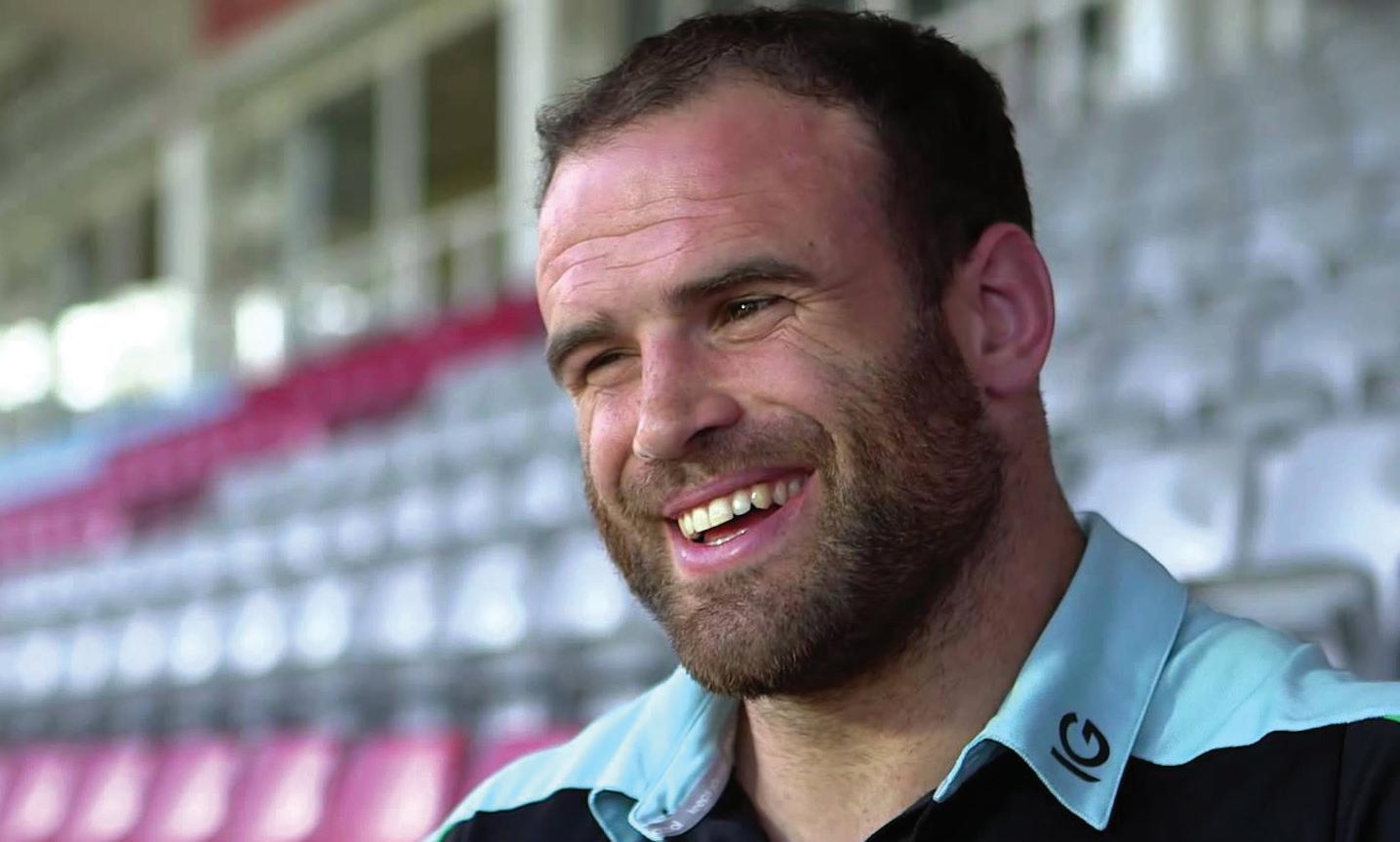

Cardiff should be more like Swansea P34>>

Interview with Cardiff Devils’ manager P35>>


Wales squad for Belgium announced P34>>